Tom's Hardware Verdict
The Corsair SF750 is the strongest, highest-performing SFX-style PSUs you can buy, but you'll pay a huge premium for the wattage.
Pros
- +
Powerful
- +
Efficient
- +
Great ripple suppression
- +
Tight load regulation
- +
Quiet operation
- +
Fully modular
- +
7-year warranty
Cons
- -
Expensive
- -
Low hold-up time
- -
Semi-passive mode cannot be deactivated
Why you can trust Tom's Hardware
Specifications and Part Analysis
The Corsair SF750 is the strongest and one of the best SFX power supplies that money can get you today. If you want so much power out of such a small PSU and you can afford its stiff price, there is no other option. It can easily support a potent gaming system and thanks to the couple of EPS connectors that it has, it is compatible with high-end mainboards that need more juice in the CPU's area. In case you don't need more than one EPS connector, you should better take a look at the top-notch SF600 Platinum, which we have already evaluated, and save a notable amount of money. Corsair has set the bar too high in the SFX market, making it very difficult for the rest brands to follow. Even the pioneer in this area, SilverStone, doesn't have, for the moment at least, a 750W SFX model in its portfolio.
After the great SF600 and SF450 Platinum models, both of which we already reviewed, Corsair strikes again with the SF750 which addresses enthusiasts and ultra demanding users, who need a strong, but still-compact PSU. Not long ago it would be crazy just to even think of such a powerful SFX unit, but Corsair along with Great Wall, the manufacturer of all SF models, managed to make this happen and they deserve high praise for their efforts.
In addition to its high capacity, the SF750 offers high efficiency levels, which are verified by its 80 PLUS Platinum and Cybenetics ETA-A certifications. Such a highly efficient PSU doesn't have a problem keeping its noise output low, since the thermal loads are highly reduced. In the Cybenetics scale the SF750 achieves a LAMBDA-A- level, meaning that this product has a fairly quiet overall operation.
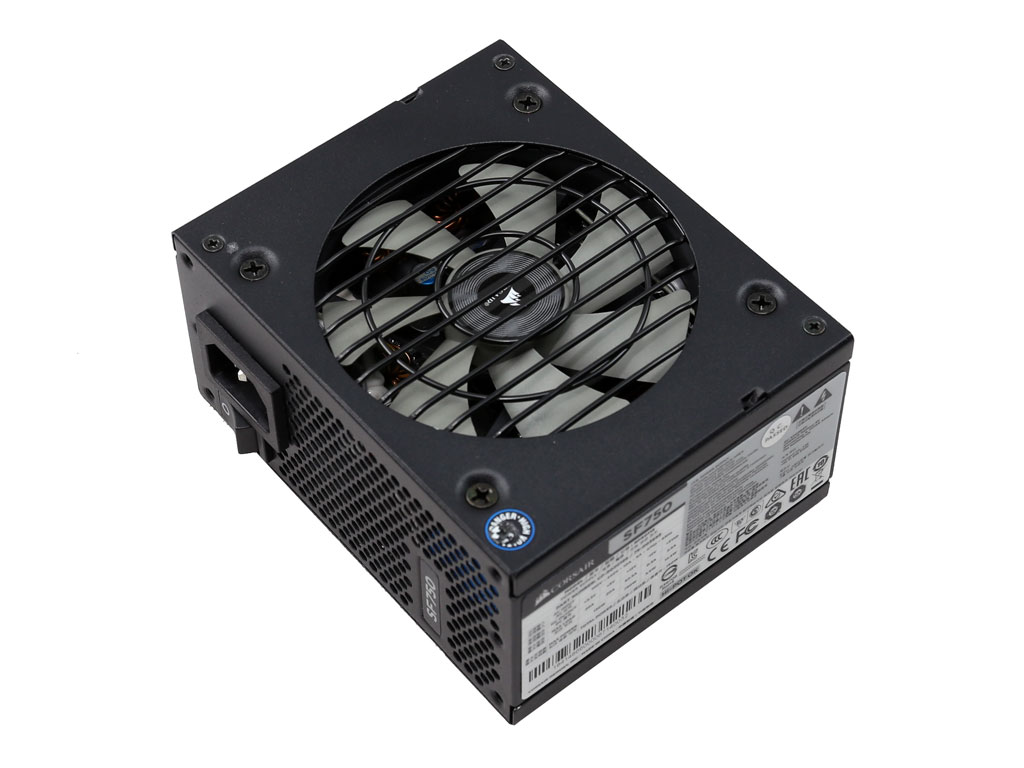
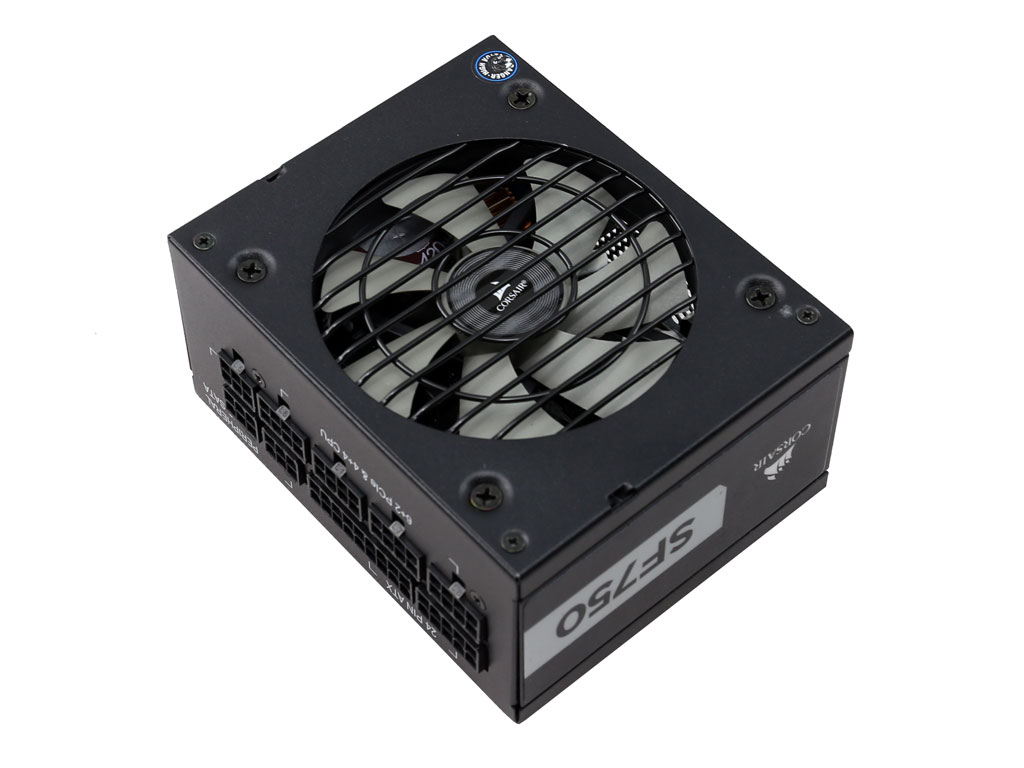
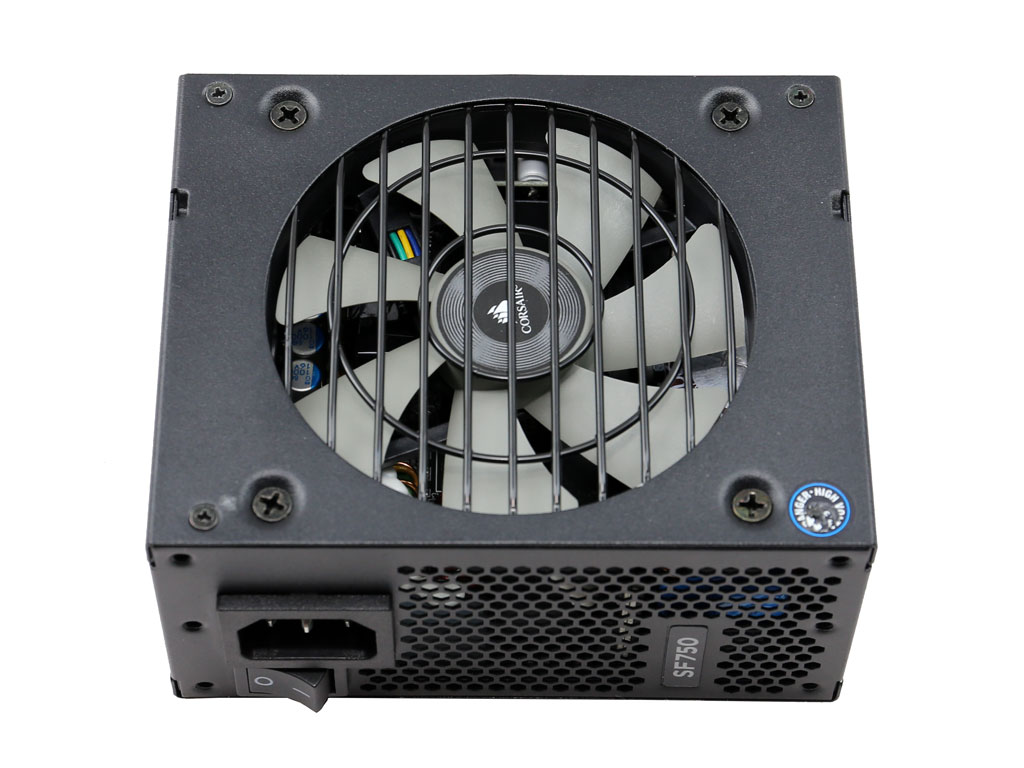
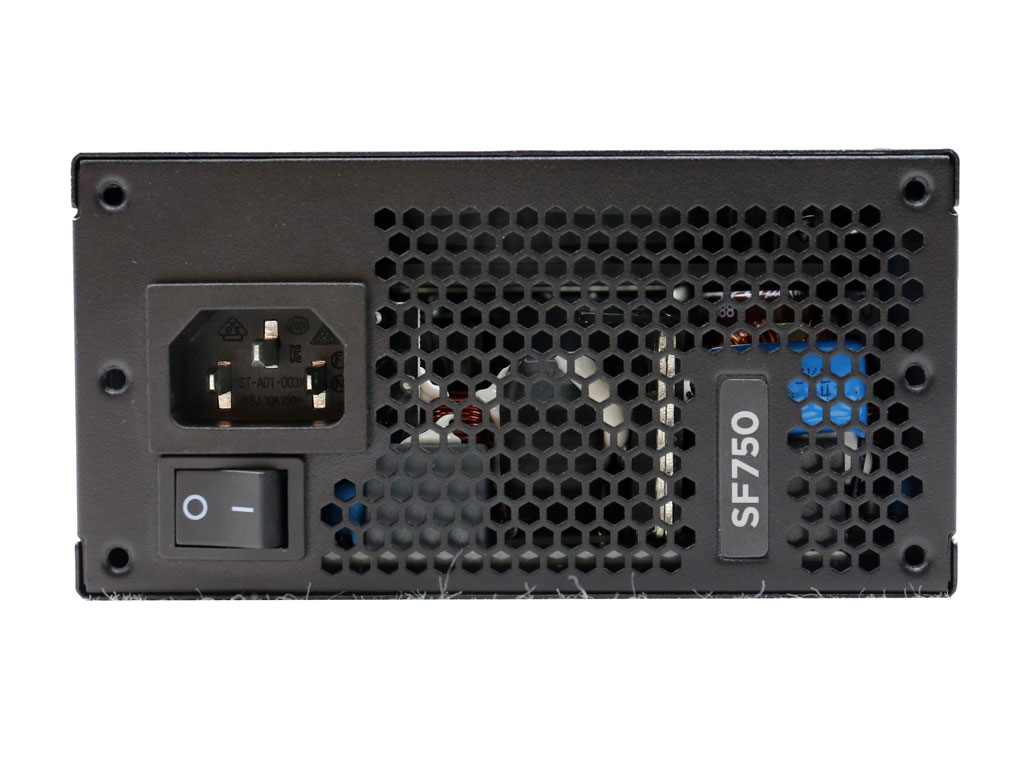
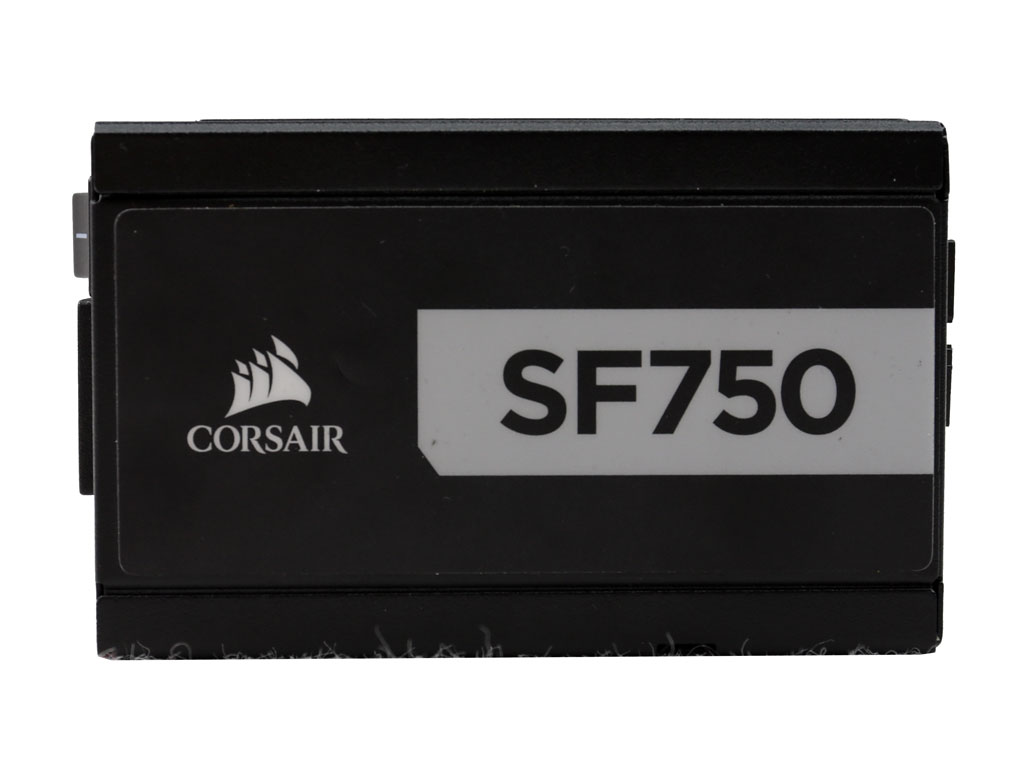
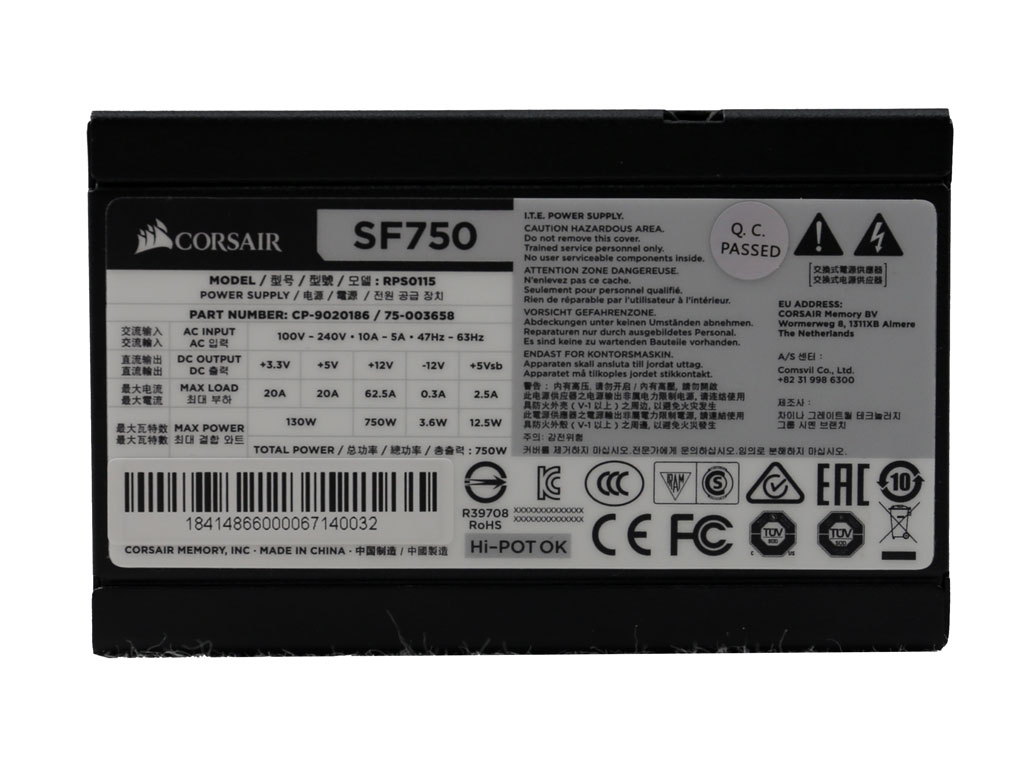
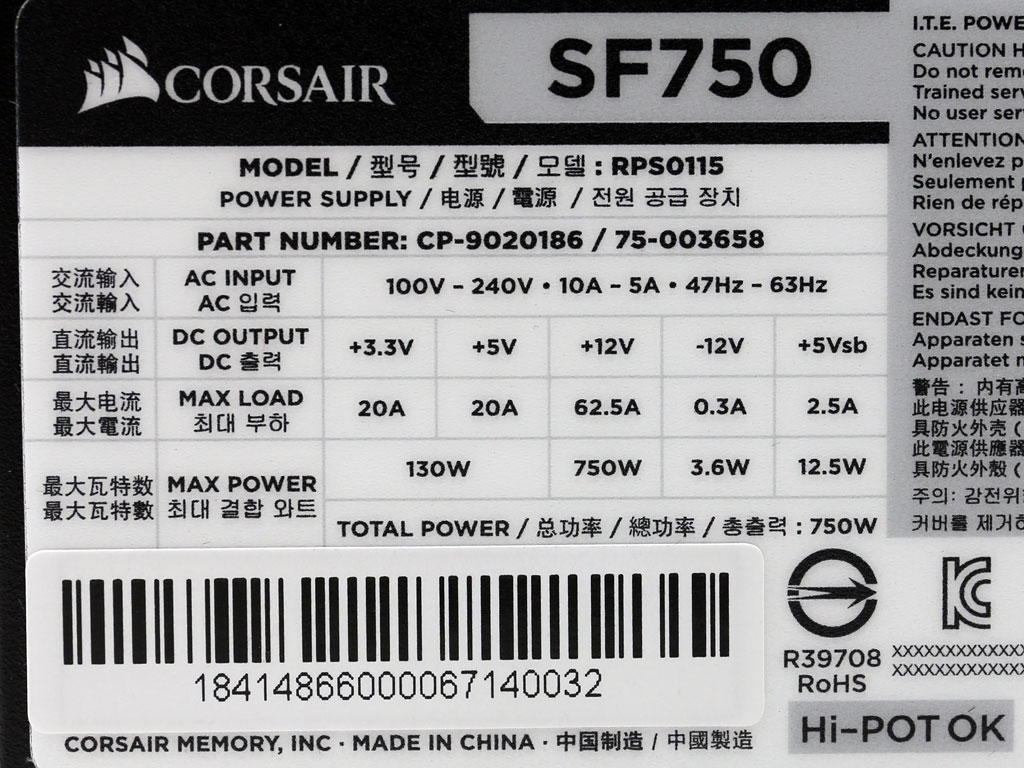
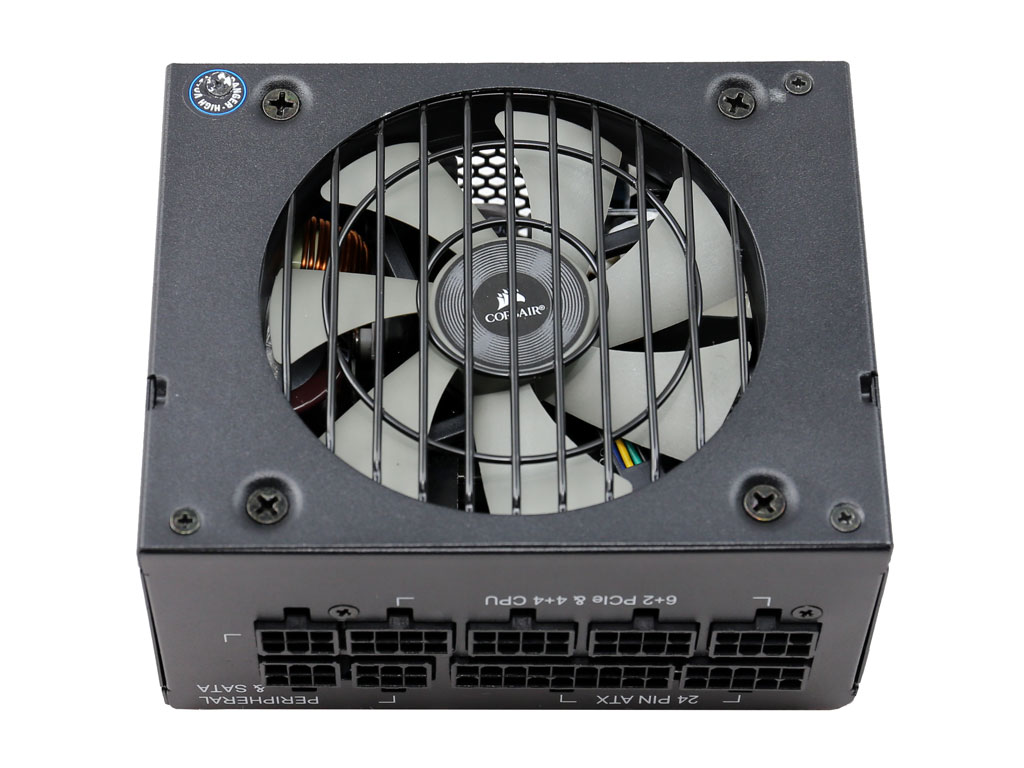
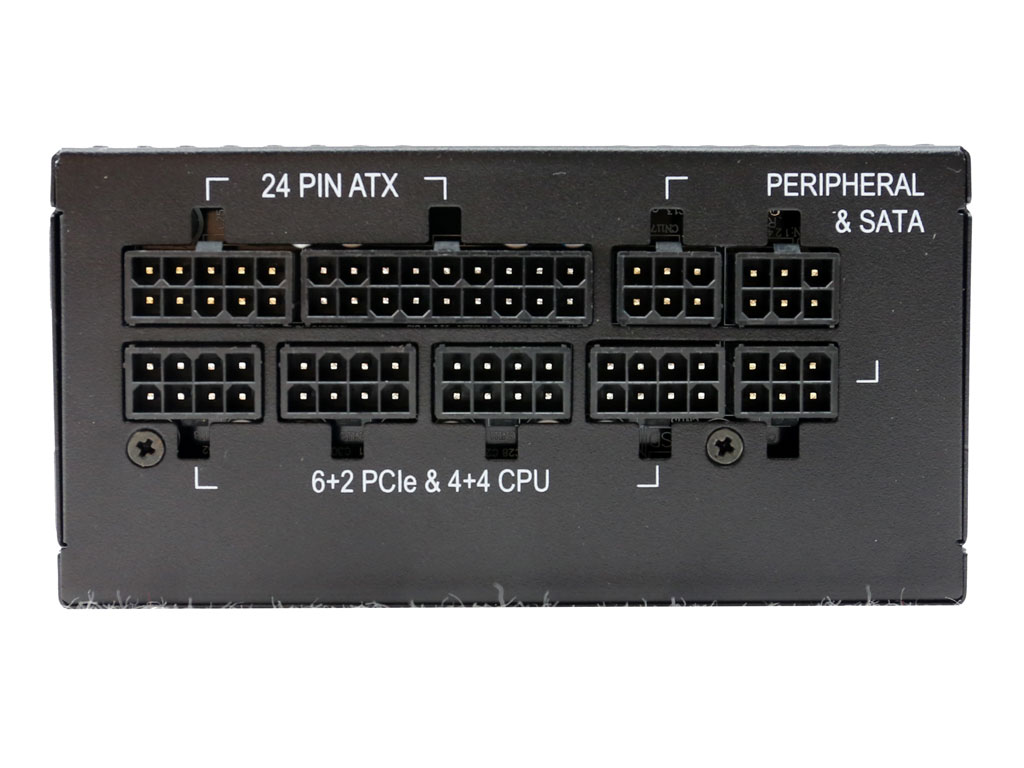
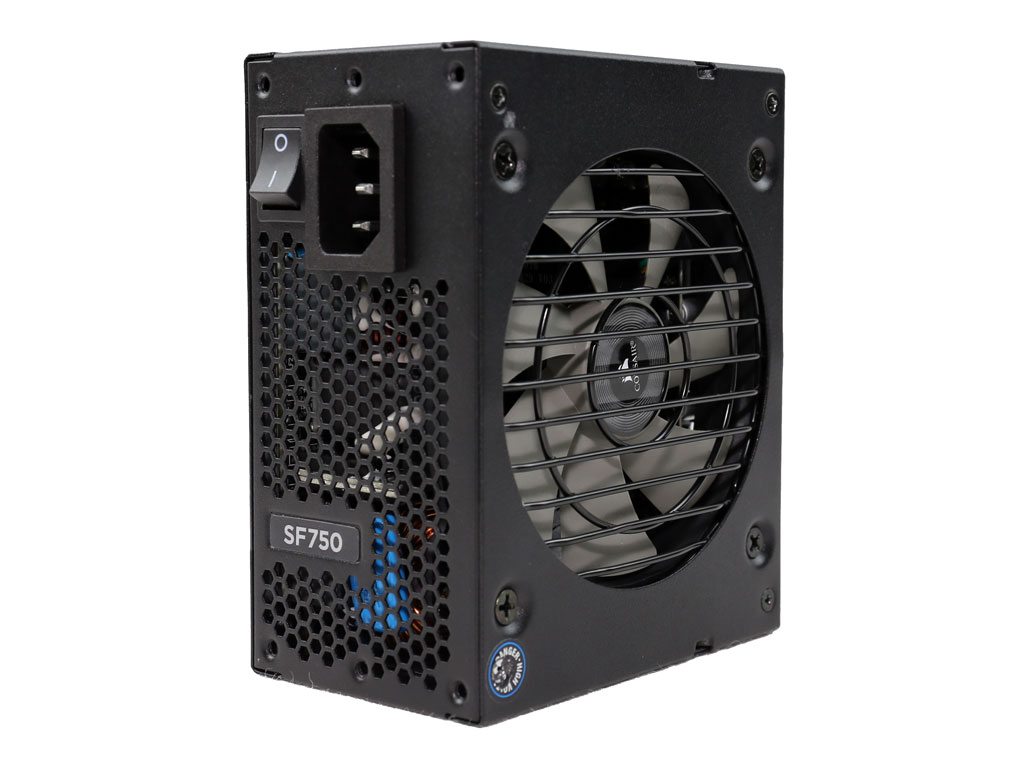
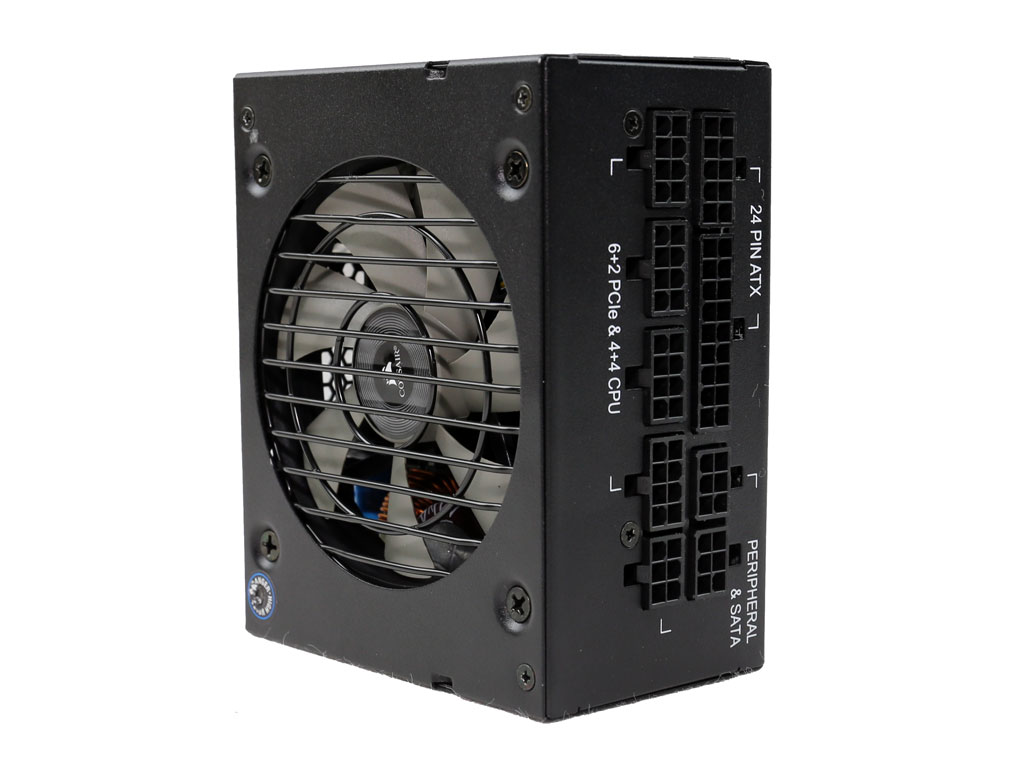
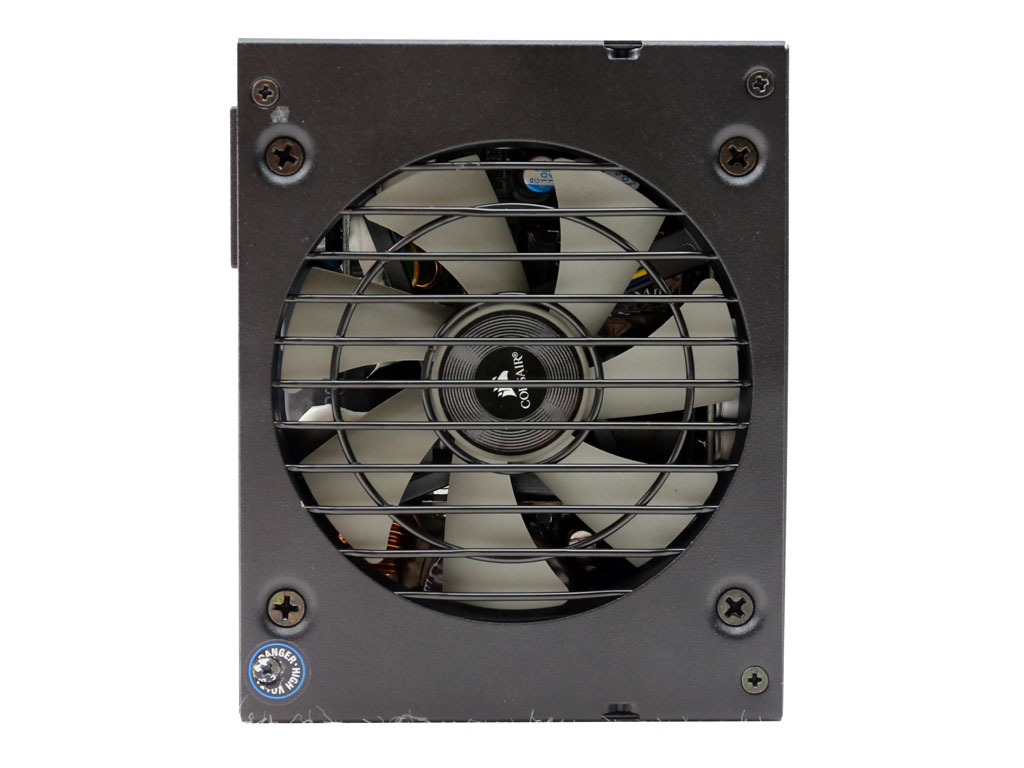
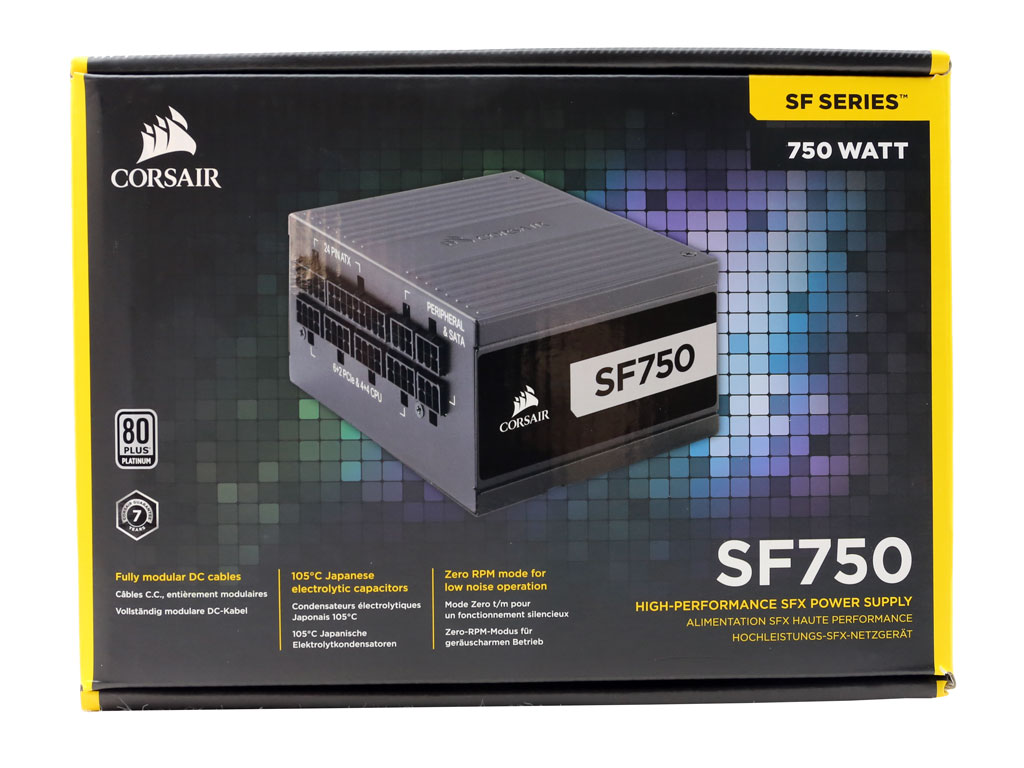
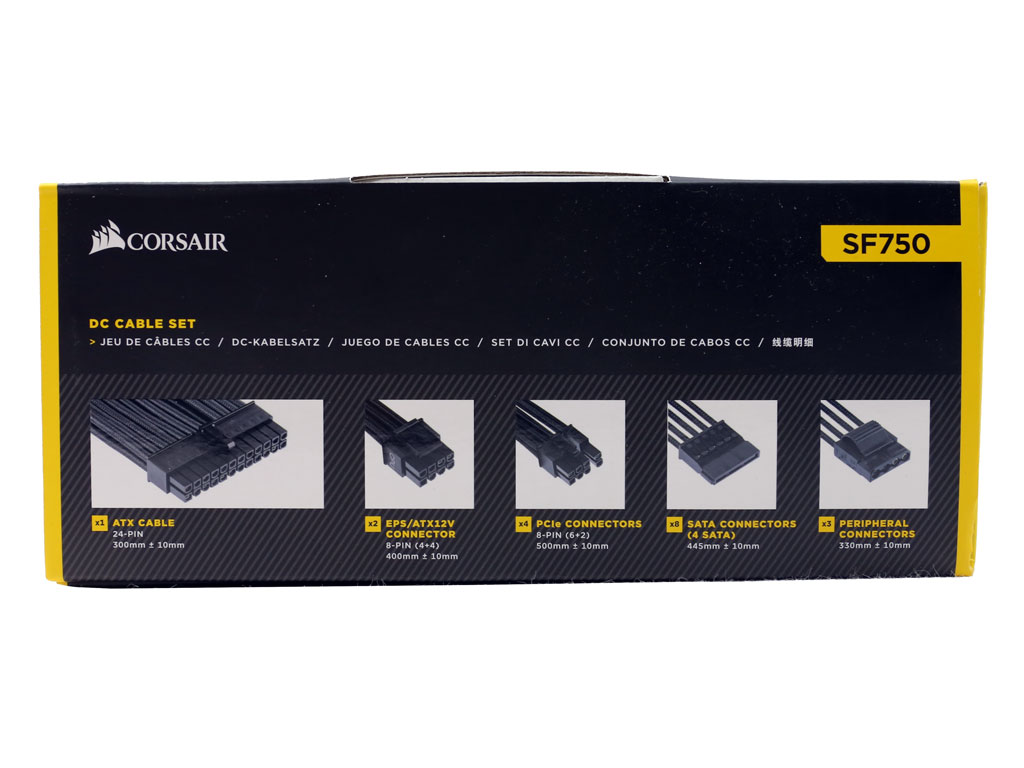
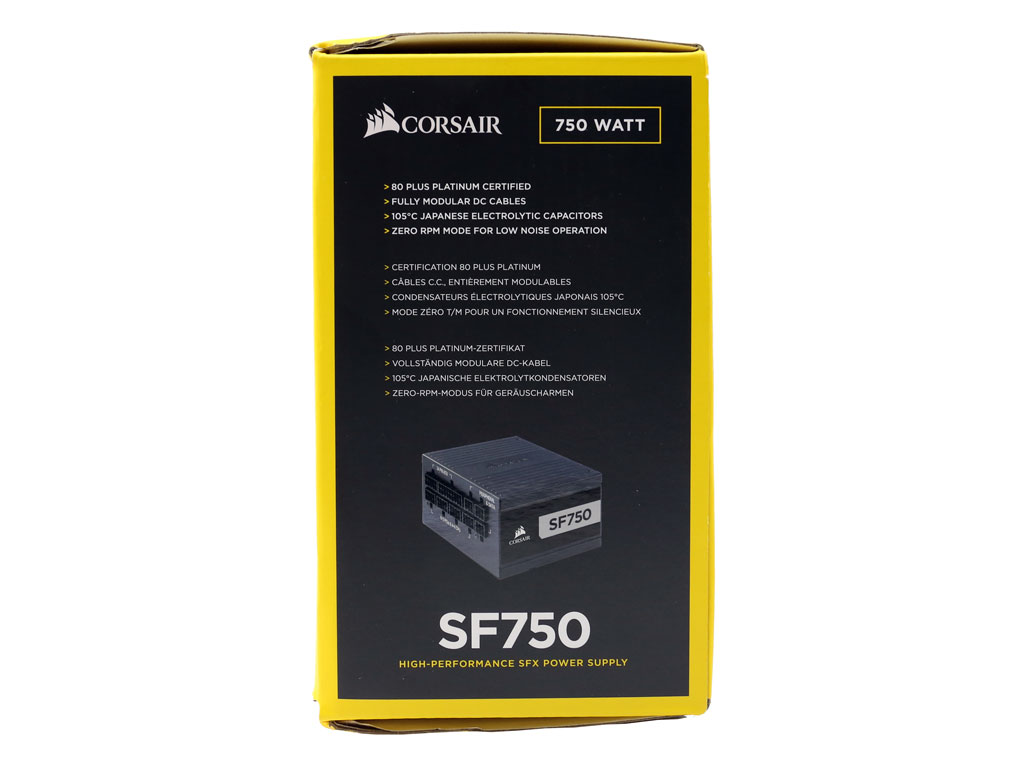
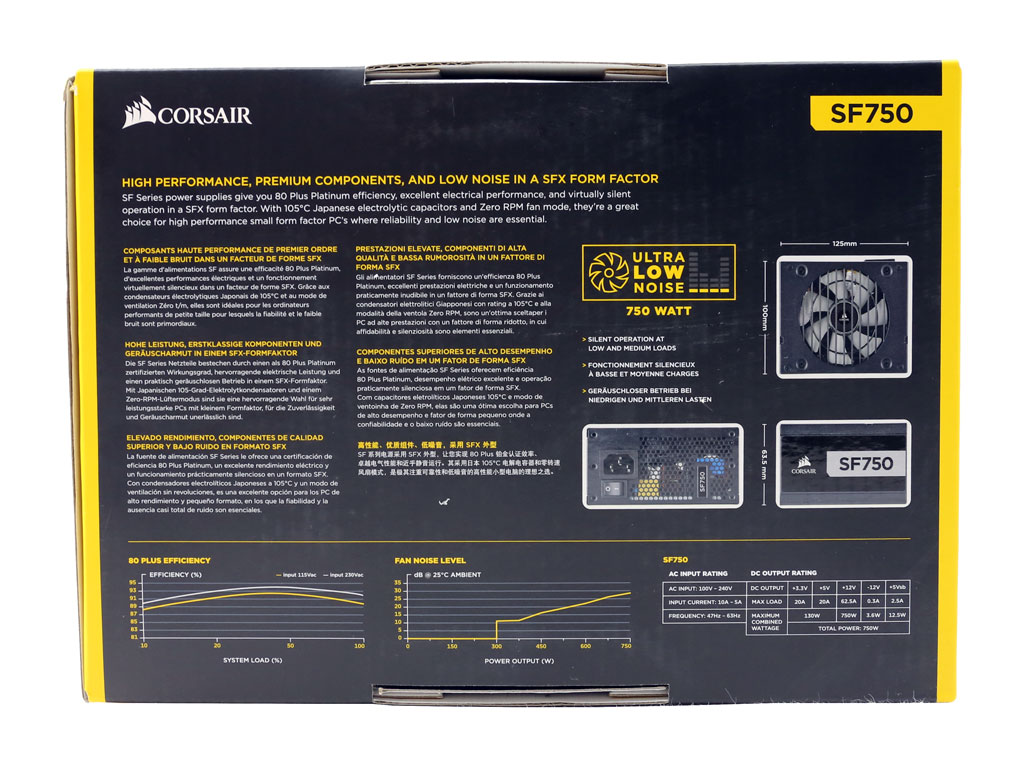
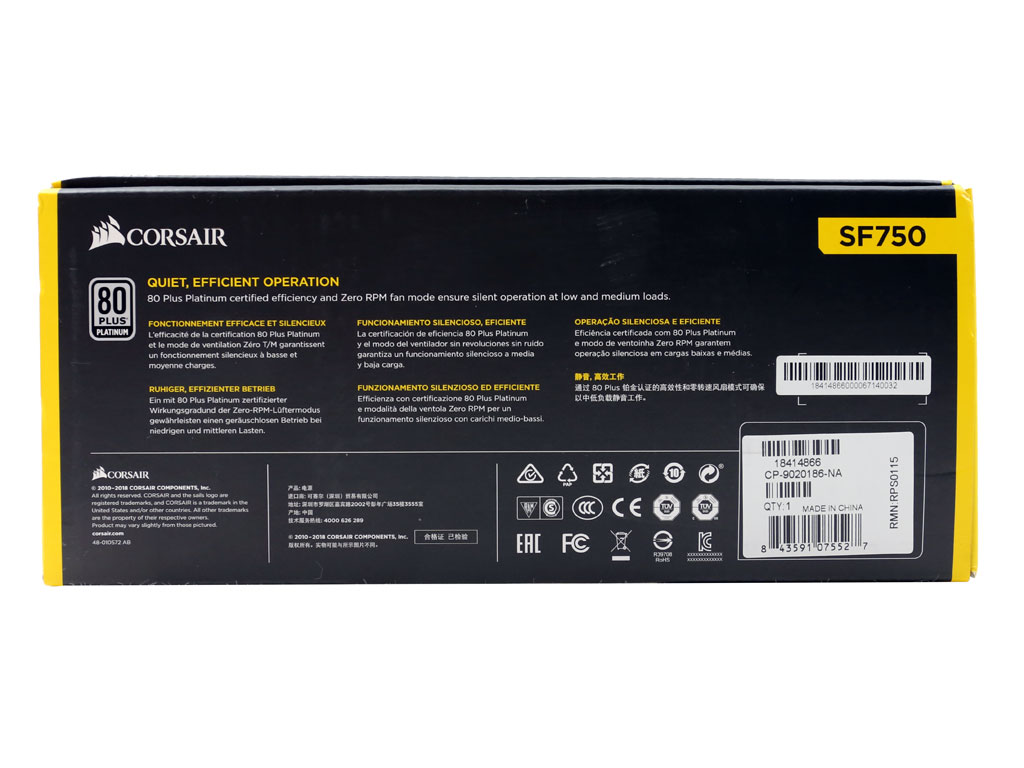
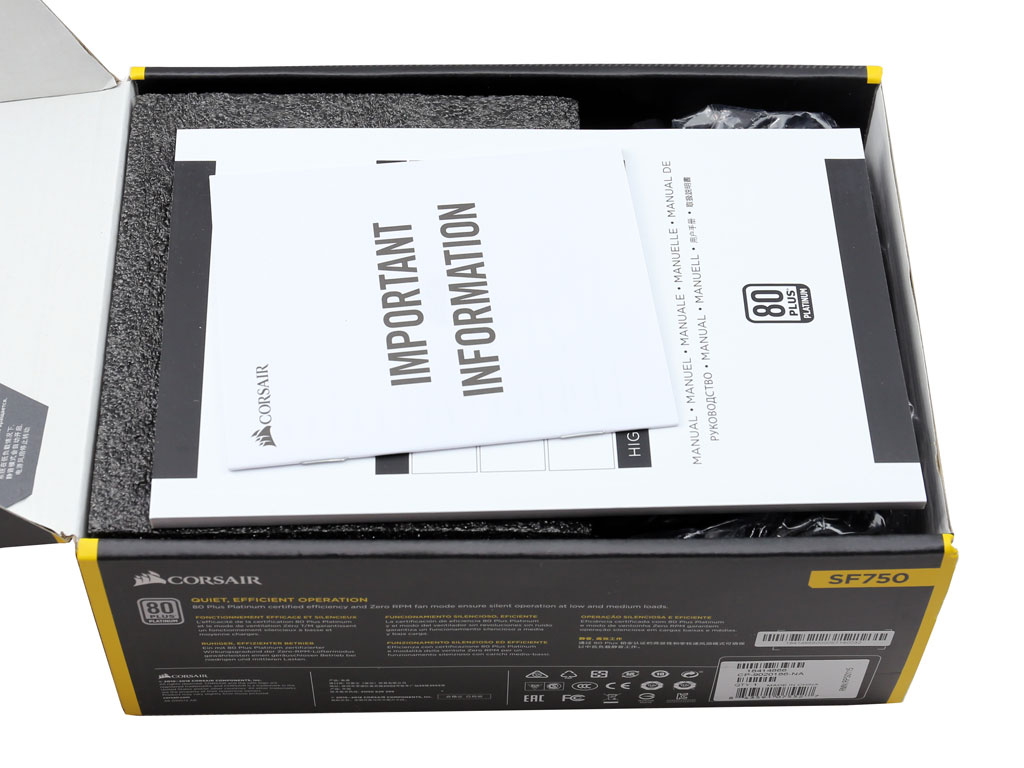
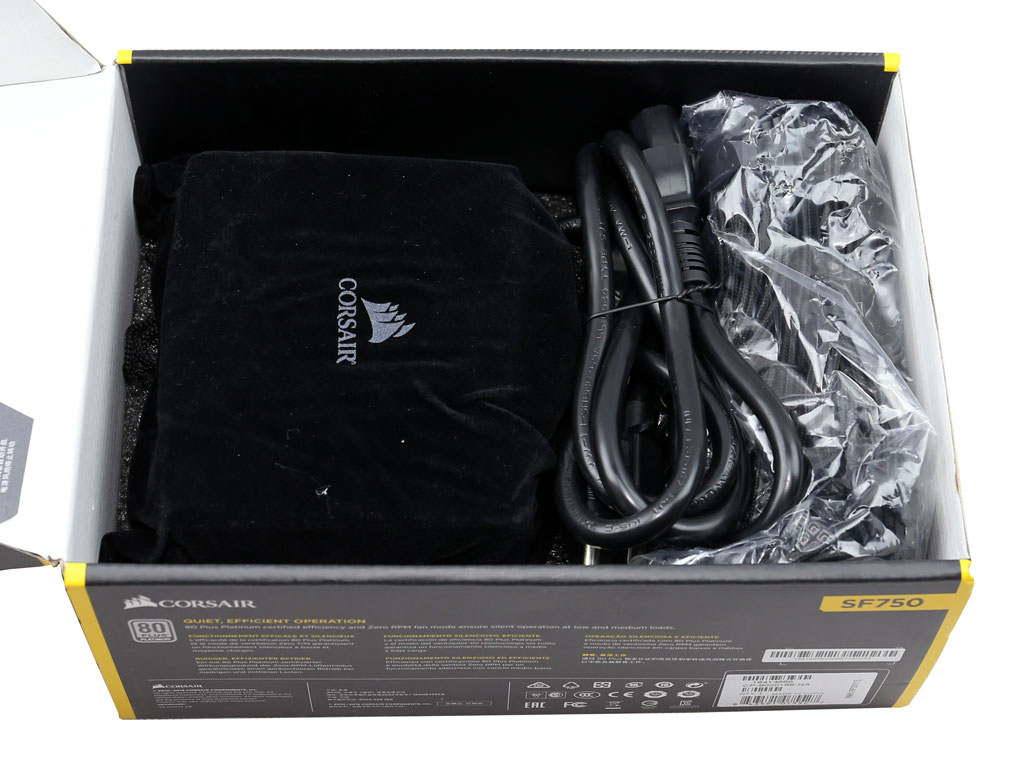
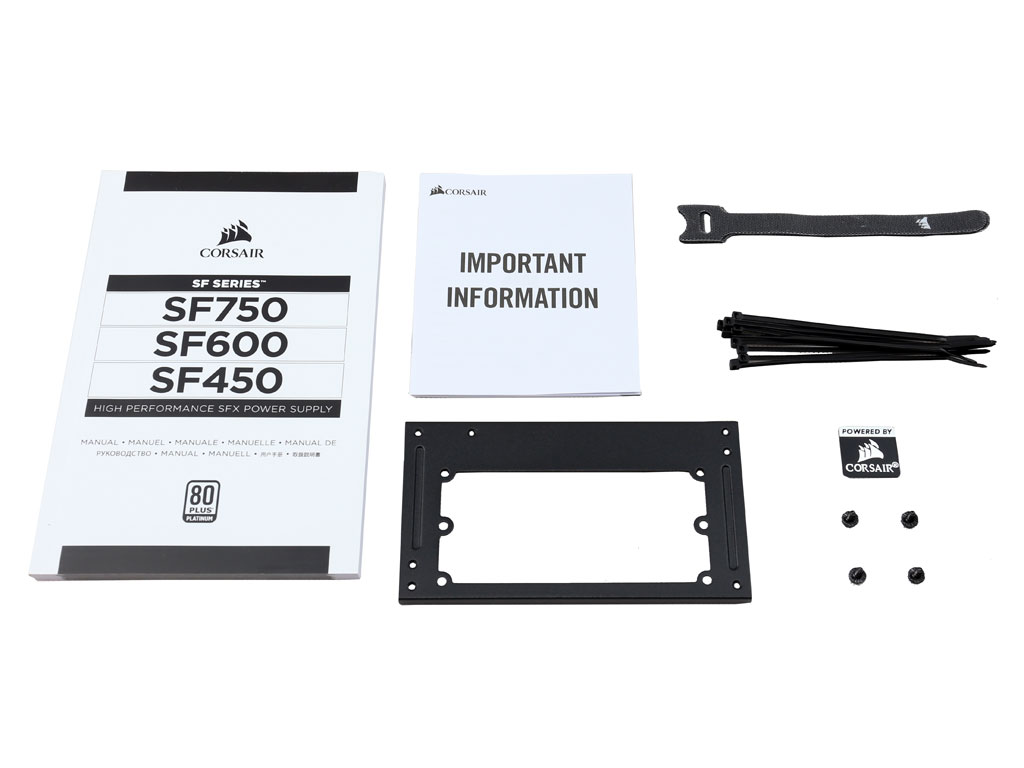
Specifications
| Manufacturer (OEM) | Great Wall |
|---|---|
| Max. DC Output | 750W |
| Efficiency | 80 PLUS Platinum, ETA-A (88-91%) |
| Noise | LAMBDA-A- (25-30 dB[A]) |
| Modular | ✓ (Fully) |
| Intel C6/C7 Power State Support | ✓ |
| Operating Temperature (Continuous Full Load) | 0 - 50°C |
| Over Voltage Protection | ✓ |
| Under Voltage Protection | ✓ |
| Over Power Protection | ✓ |
| Over Current (+12V) Protection | ✓ |
| Over Temperature Protection | ✓ |
| Short Circuit Protection | ✓ |
| Surge Protection | ✓ |
| Inrush Current Protection | ✓ |
| Fan Failure Protection | ✗ |
| No Load Operation | ✓ |
| Cooling | 92mm Rifle Bearing Fan (NR092L) |
| Semi-Passive Operation | ✓ |
| Dimensions (W x H x D) | 128 x 65 x 102mm |
| Weight | 0.9 kg (1.98 lb) |
| Form Factor | SFX, EPS 2.92 |
| Warranty | 7 Years |
Power Specifications
| Rail | 3.3V | 5V | 12V | 5VSB | -12V | |
|---|---|---|---|---|---|---|
| Max. Power | Amps | 20 | 20 | 62.5 | 2.5 | 0.3 |
| Watts | 130 | 750 | 12.5 | 3.6 | ||
| Total Max. Power (W) | 750 |
Cables & Connectors
| Modular Cables | ||||
|---|---|---|---|---|
| Description | Cable Count | Connector Count (Total) | Gauge | In Cable Capacitors |
| ATX connector 20+4 pin (300mm) | 1 | 1 | 16-18AWG | No |
| 4+4 pin EPS12V (400mm) | 2 | 2 | 16AWG | No |
| 6+2 pin PCIe (400mm+100mm) | 2 | 4 | 16AWG | No |
| SATA (100mm+120mm+120mm120mm) | 2 | 8 | 18AWG | No |
| 4 pin Molex (100mm+120mm+120mm) | 1 | 3 | 18AWG | No |
| AC Power Cord (1380mm) - C13 coupler | 1 | 1 | 16AWG | - |
All cables are modular and it is nice to find two EPS connectors in a SFX unit. This is the first time that we see such a compact PSU featuring a couple of those connectors. Moreover, the SF750 has enough PCIe and peripheral connectors to support a strong system. Finally, all cables are individually sleeved and there are no in-line caps.
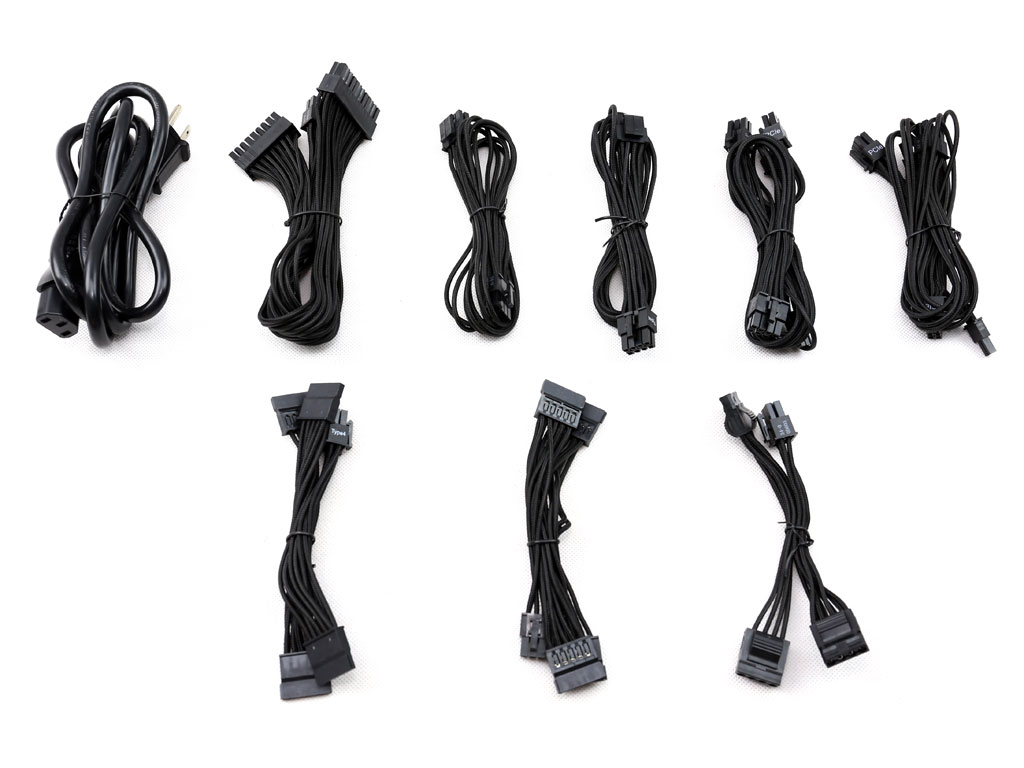
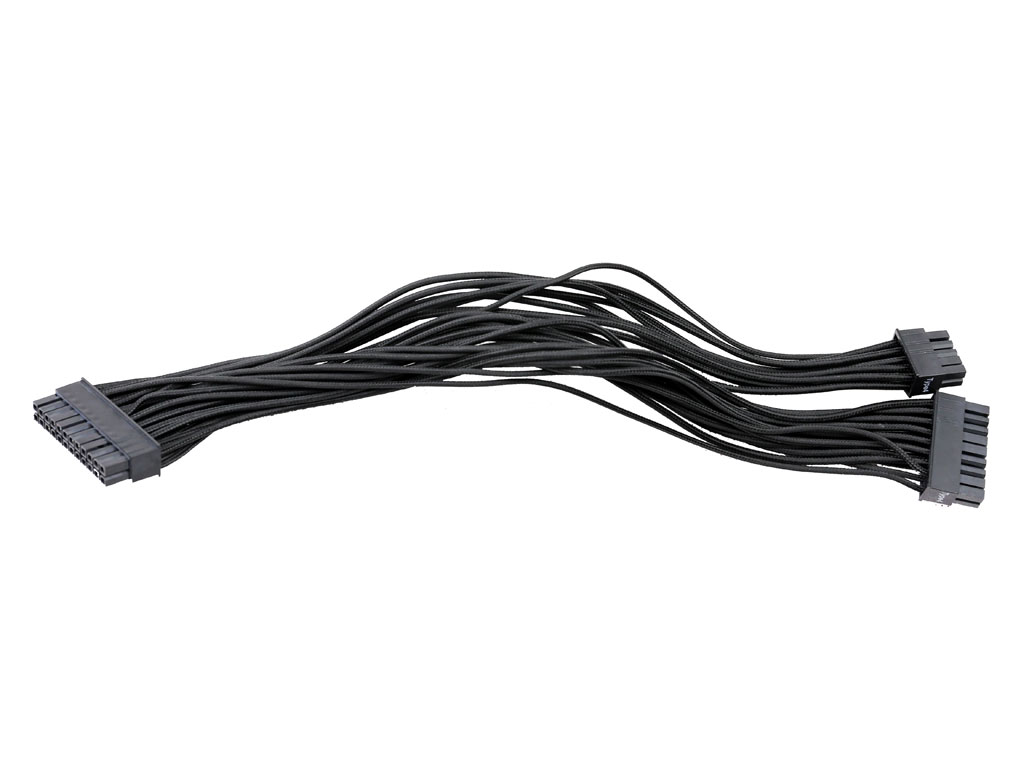
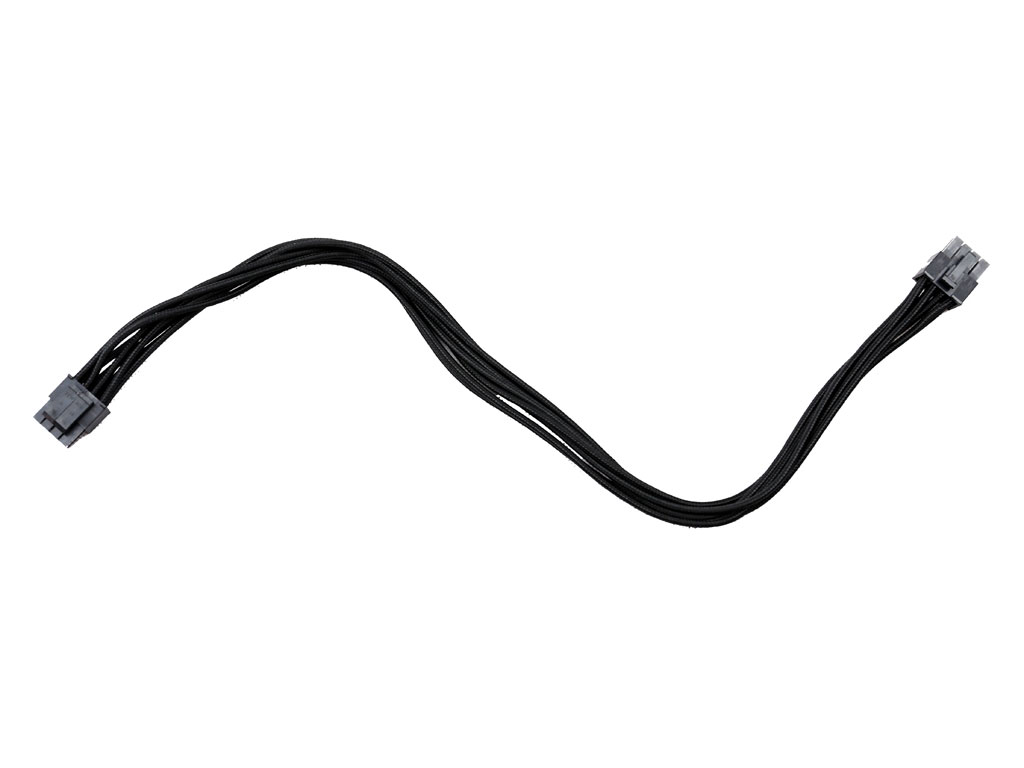
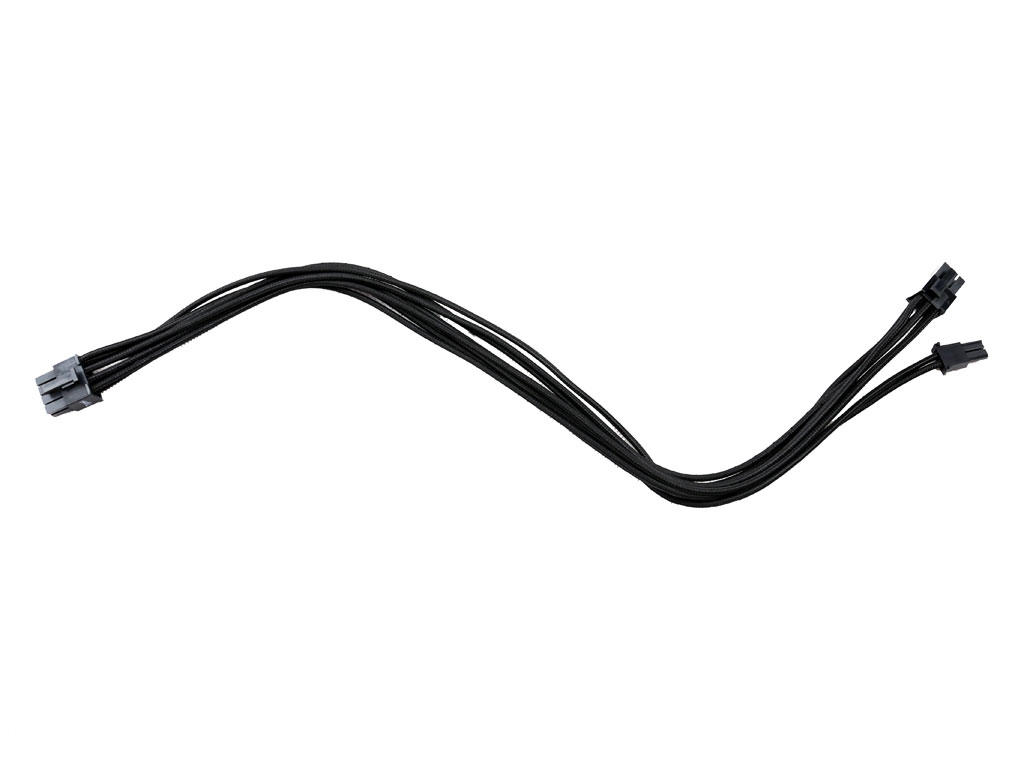
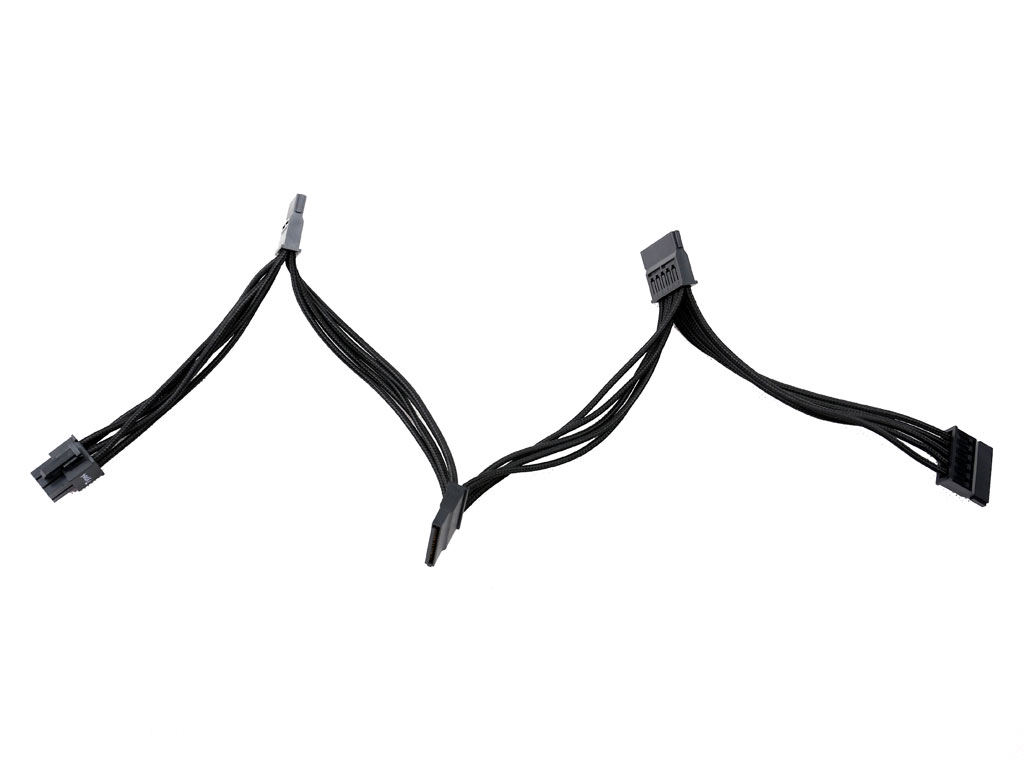
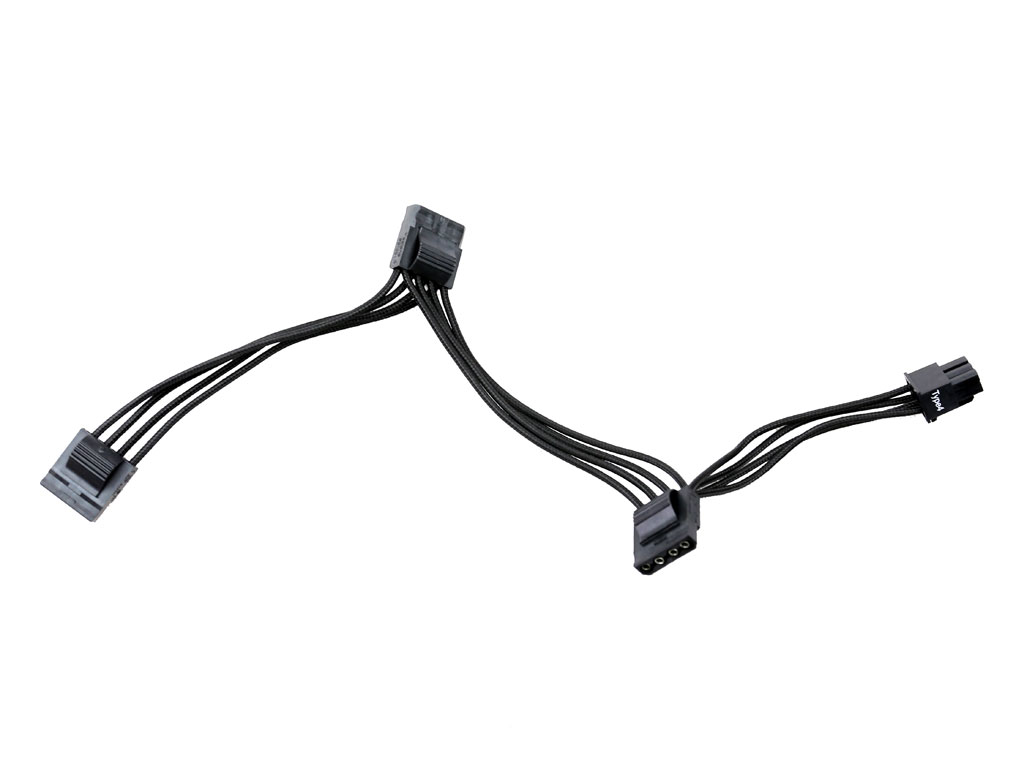
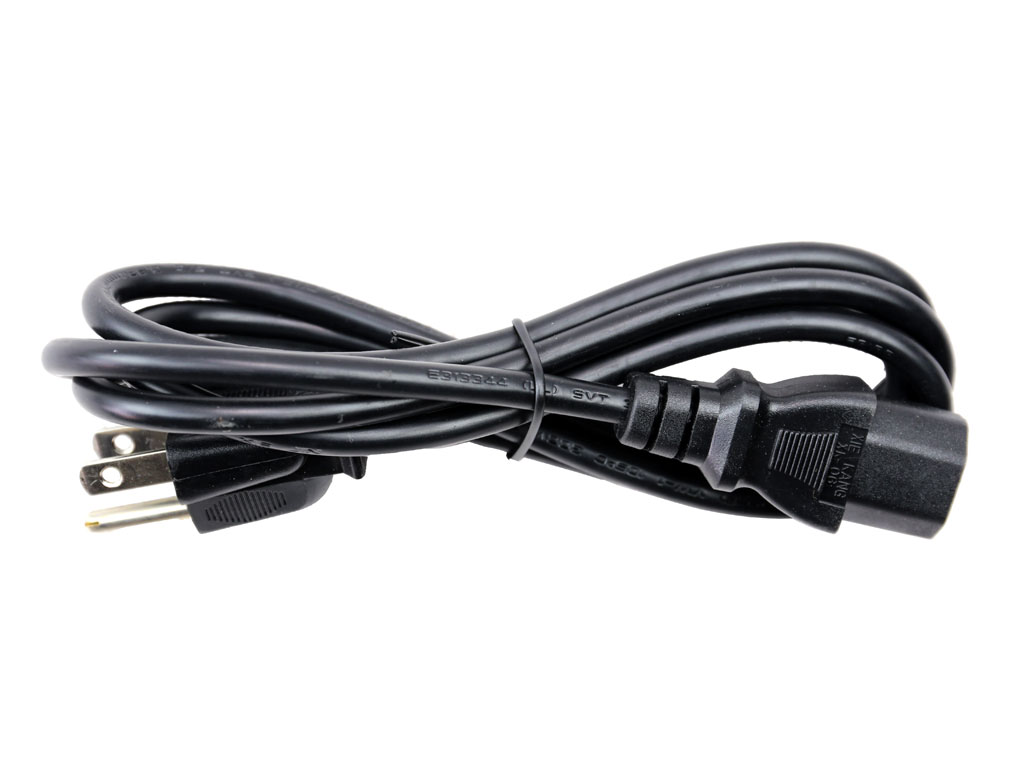
Component Analysis
| General Data | |
|---|---|
| Manufacturer (OEM) | Great Wall |
| Model Number | RPS0115 |
| Primary Side | |
| Transient Filter | 4x Y caps, 2x X caps, 3x CM chokes, 1x MOV, 1x CMD02X |
| Inrush Protection | NTC Thermistor & Diode |
| Bridge Rectifier(s) | 1x |
| APFC MOSFET | Infineon IPZ60R060C7 (650V, 22A @ 100°C, 0.06Ohm) |
| APFC Boost Diode | ROHM SCS306AP (650V, 6A @ 135°C) |
| Hold-up Cap | Nippon Chemi-Con (420V, 470uF, 2000h @ 105°C, KMZ) |
| Main Switchers | 2x 60F2094 (600V, 15.8A @ 150°C, 0.19Ohm) Driver IC: Silicon Labs Si8230BD |
| APFC Controller | Champion CM6502UHHX & CM03AX Green PFC controller |
| Resonant & PWM Controller | Champion CM6901X |
| Quasi-Resonant Contoller | Infineon 5QR1680AG |
| Topology | Primary side: Half-Bridge & LLC Resonant Controller Secondary side: Synchronous Rectification & DC-DC converters |
| Secondary Side | |
| +12V MOSFETS | 6x APower 4N1R8C-A ( 45V, 32A @ 70C, 1.8mOhm) |
| 5V & 3.3V | DC-DC Converters: 4x Infineon PSMN2R0-30YLE (30V, 100A @ 100°C, 2.8mOhm @ 100°C) PWM Controller: APW7159C |
| Filtering Capacitors | Electrolytics: 1x Nippon Chemi-Con (4-10,000 @ 105°C, KY), 2x Rubycon (3-6,000 @ 105°C, YXG) Polymers: Nippon Chemi-Con (G61B, G8, G84R, G84G, G85F), 6x Nichicon (LG) |
| Supervisor IC | Infinno IN1S429i-SCG |
| Fan Controller | PIC16F1824 |
| Fan Model | Corsair NR092L (92mm, 12V, 0.22A, 3950 RPM, Rifle Bearing) |
| 5VSB Circuit | |
| Rectifier | 1x CSD18534 (60V, 13A @ 25°C, 9.8mOhm) |
| Step-Down Converter | Texas Instruments TPS54231 (3.5V-28V Input, 2A) |
This platform is made by Great Wall and, as you can see in the table above, it uses high-quality components. However, it would be even better if a higher-capacity bulk cap was installed in the APFC converter, allowing for more than 17ms hold-up time.
In the secondary side we find a small number of electrolytic caps, so the majority of ripple filtering is handled by polymer caps. This means increased tolerance to high operating temperatures and a prolonged lifetime under the same conditions. Finally, the cooling fan uses a rifle bearing and it is the same with the ones used by the rest SF models. We expected a fluid dynamic bearing fan to be used in this model, but according to Corsair, the NR092L is reliable enough to survive the seven-year warranty with the help of semi-passive operation.
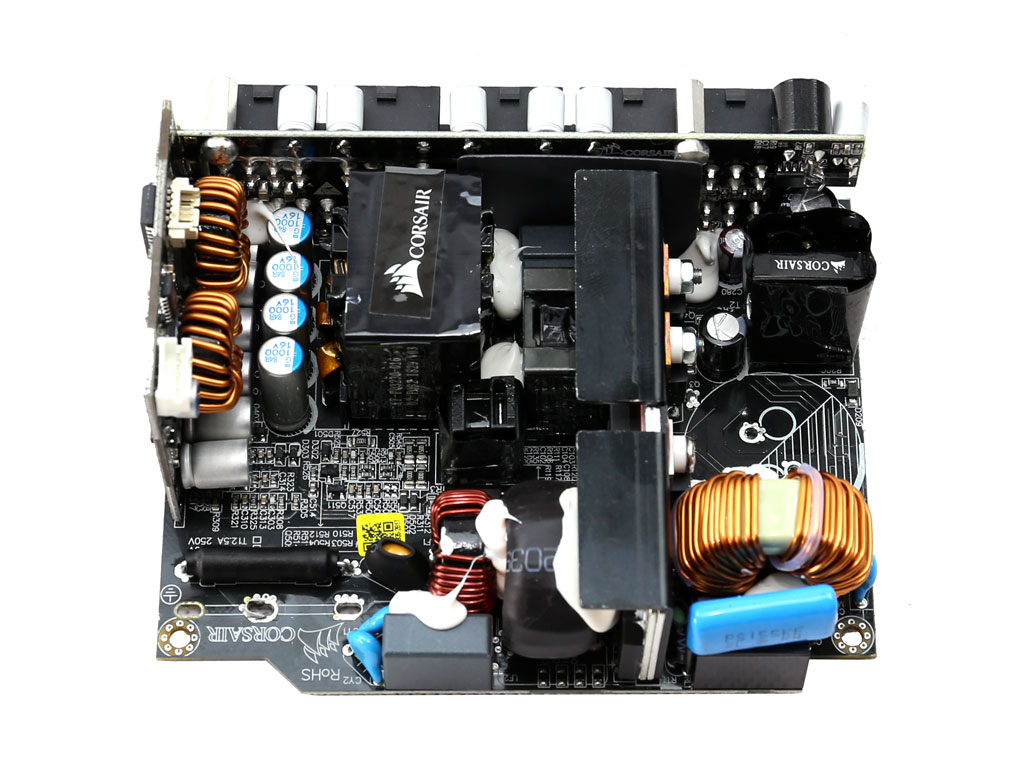
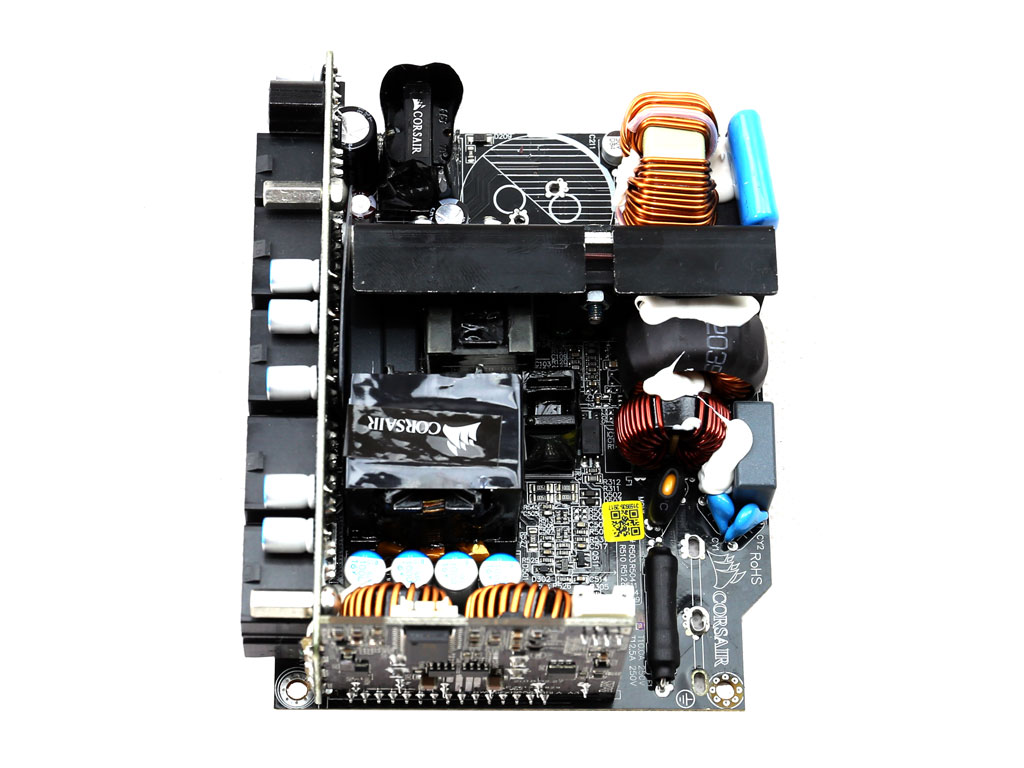
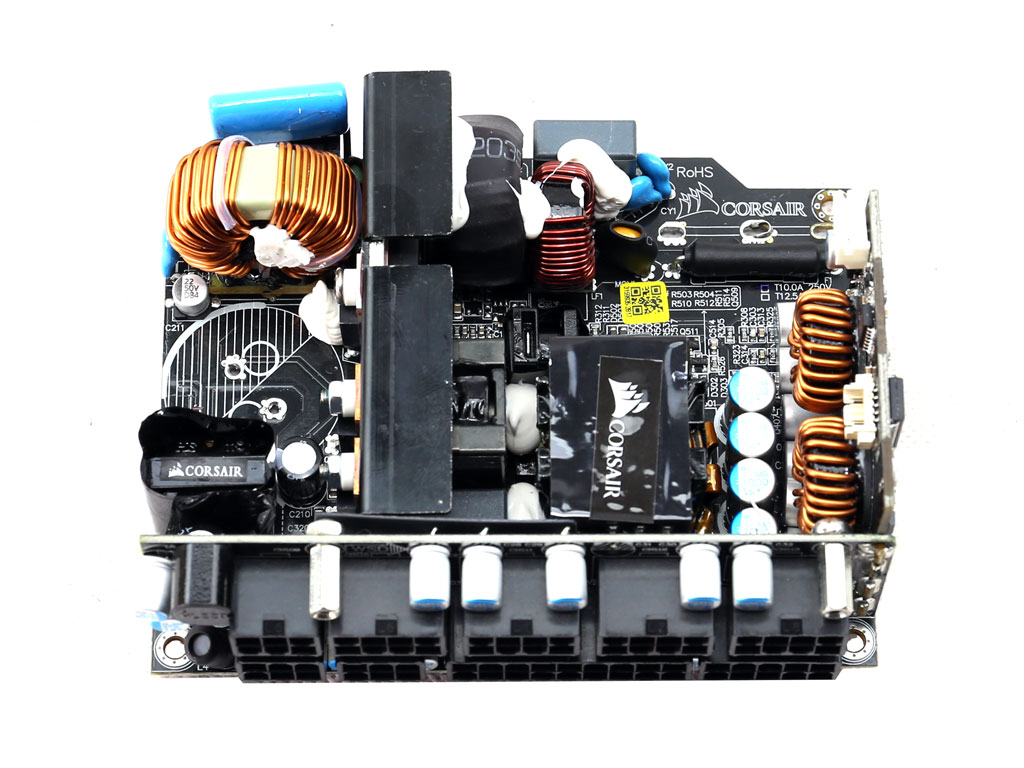
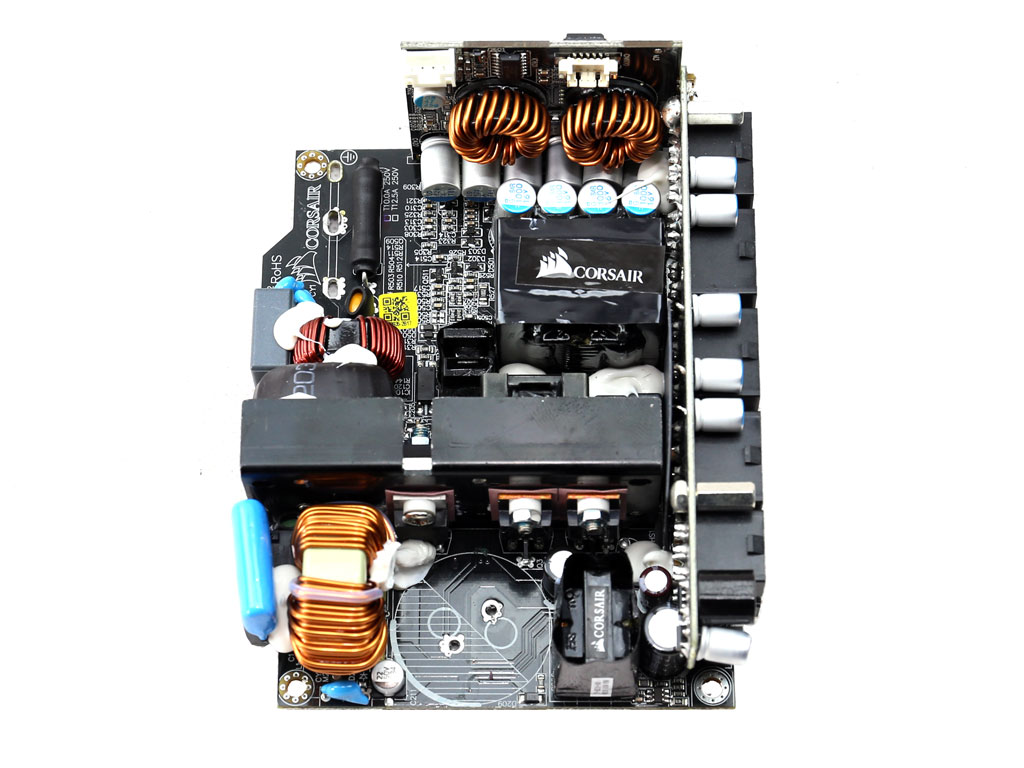
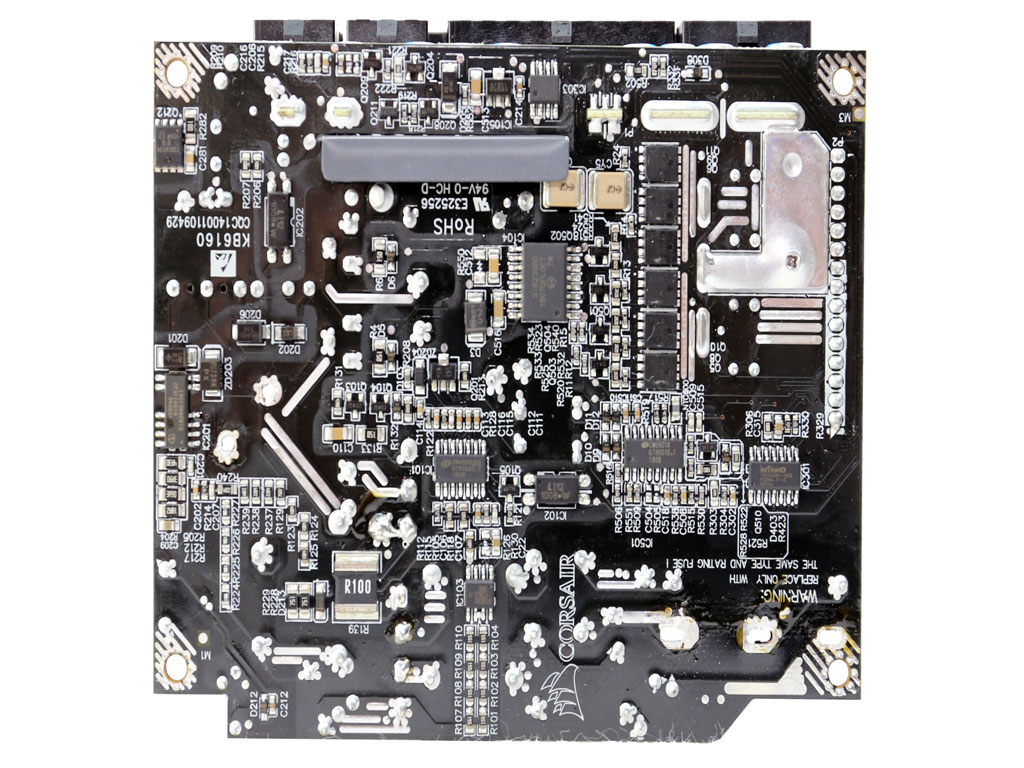
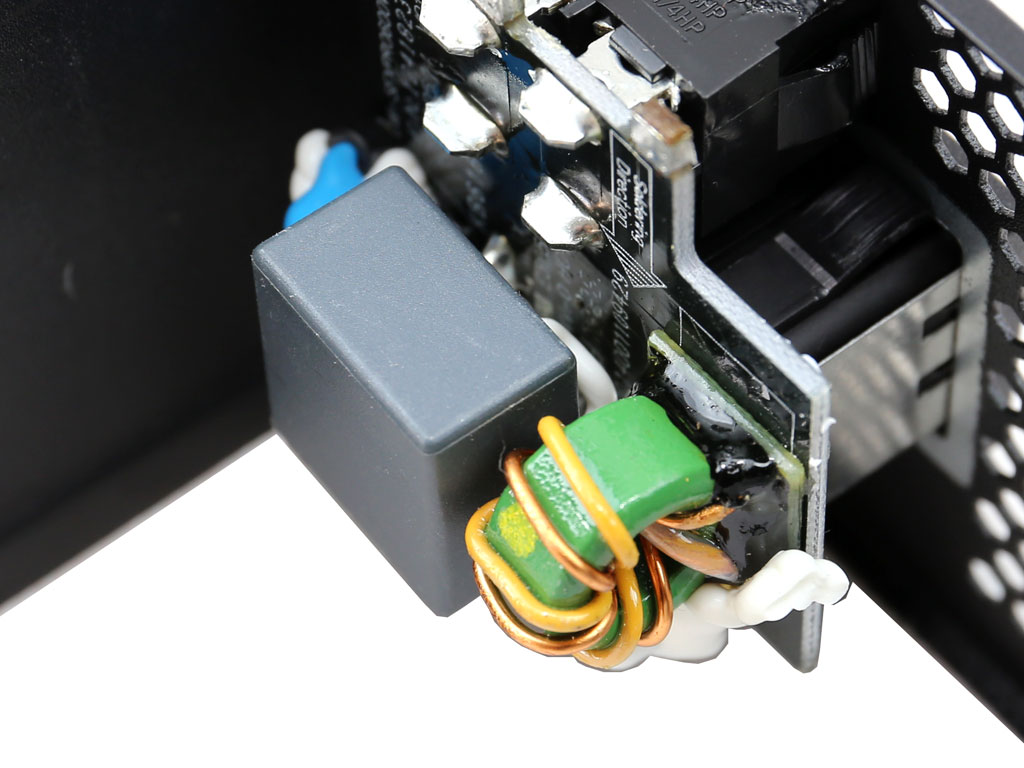
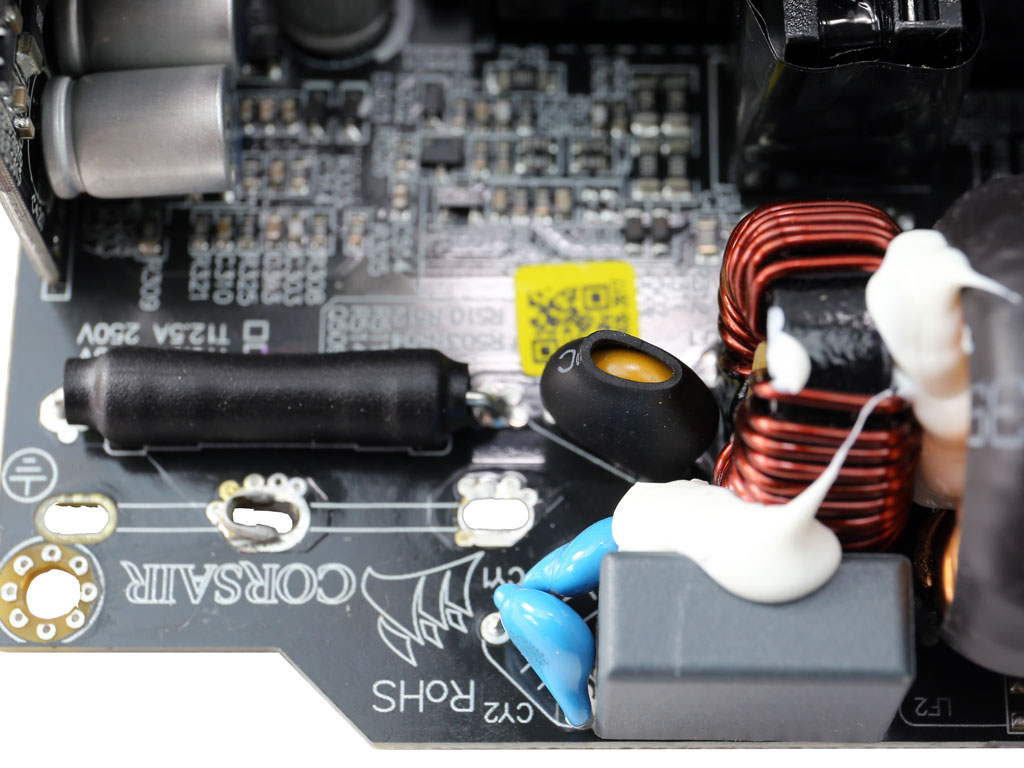
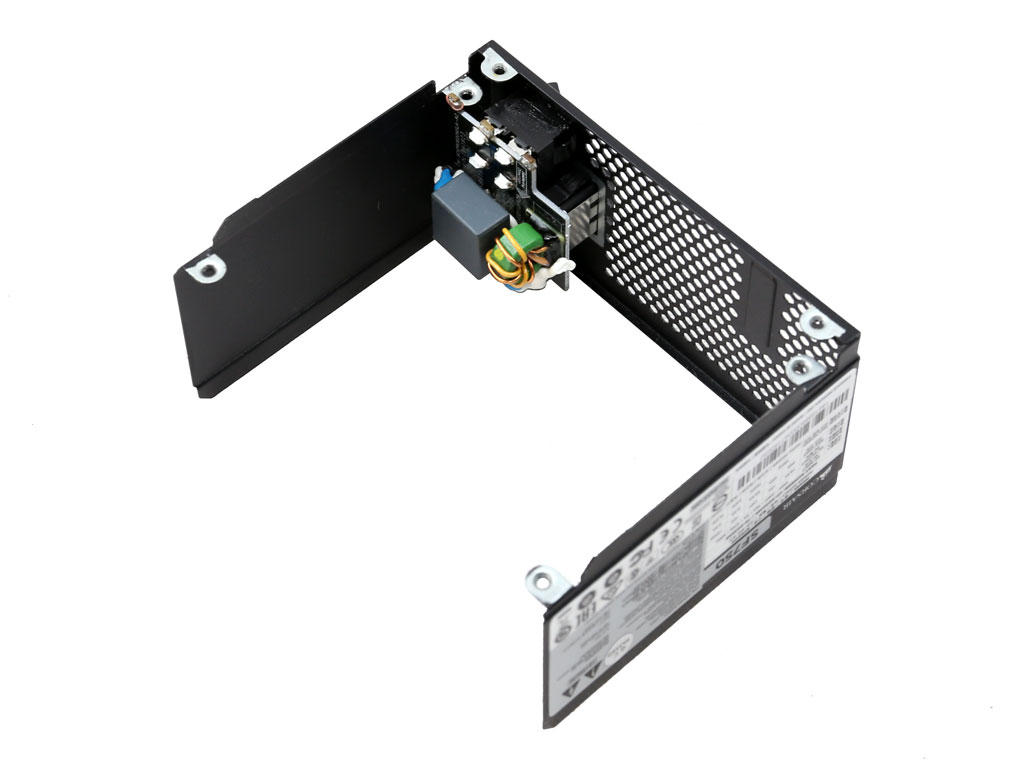
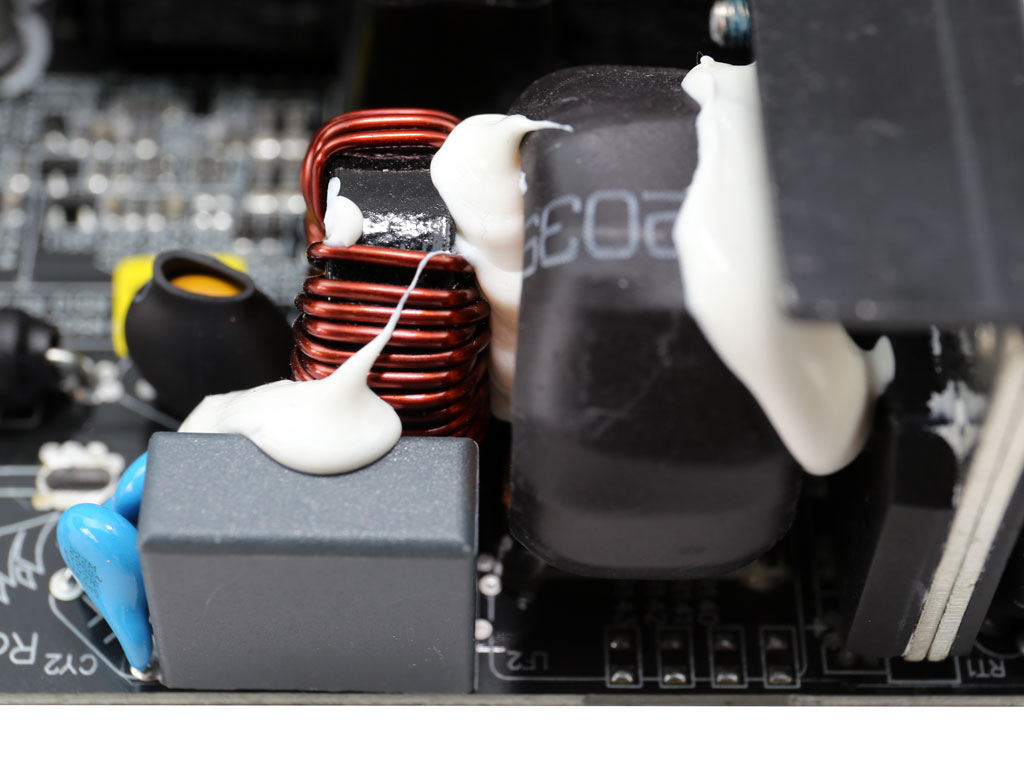
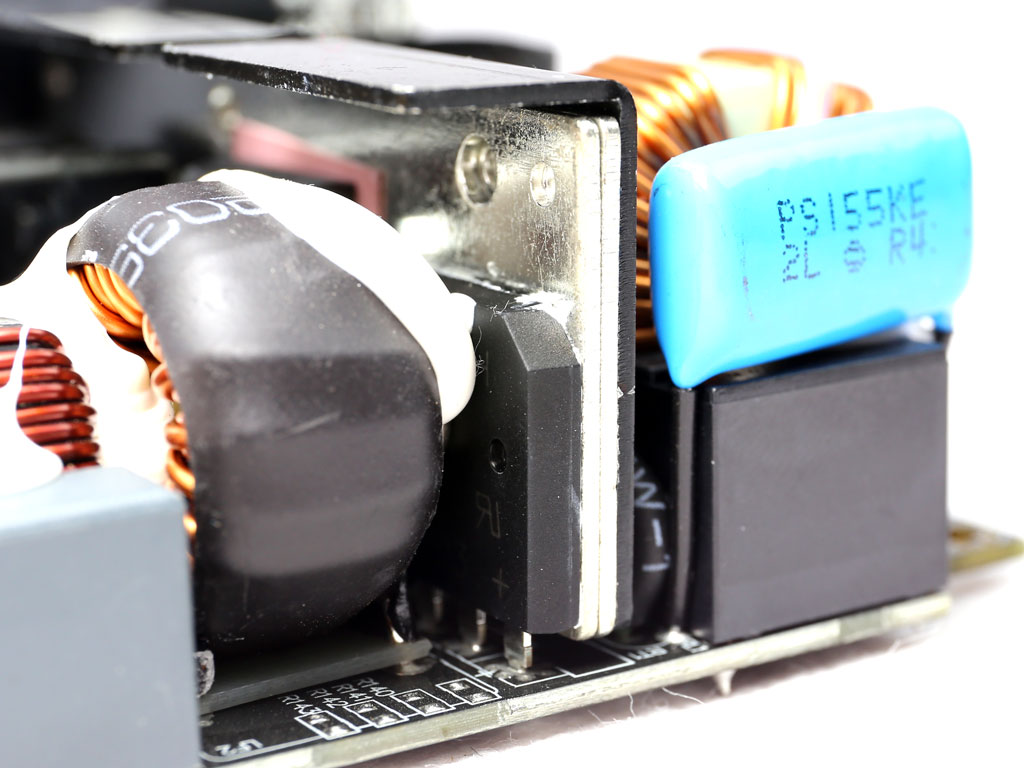
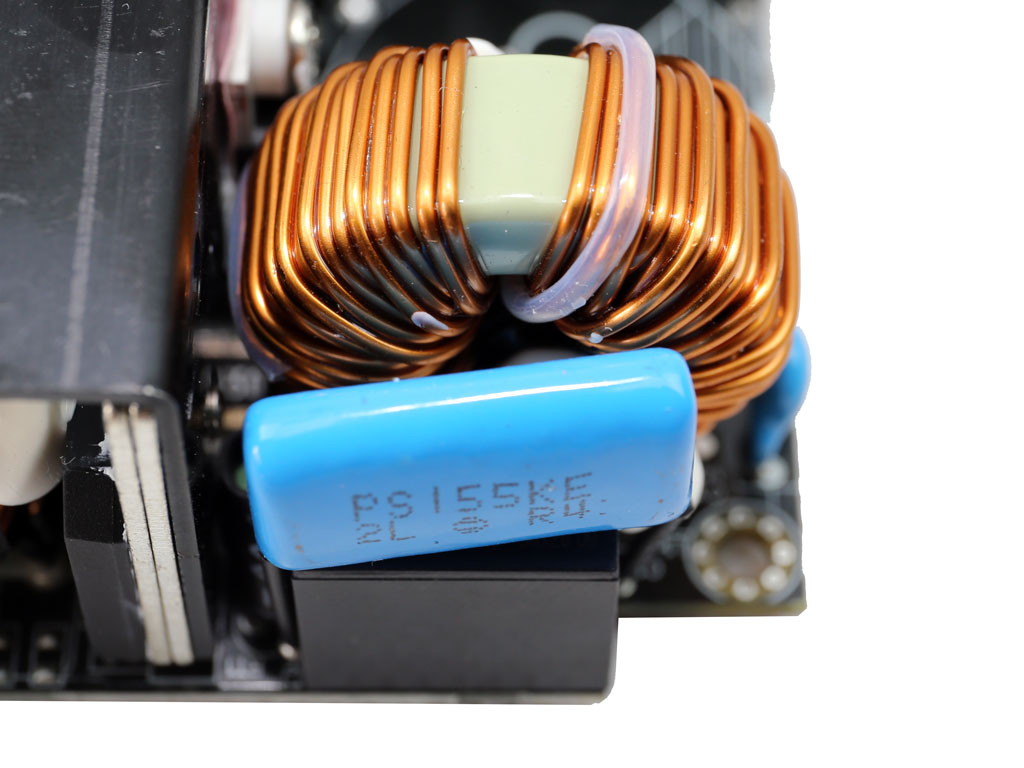
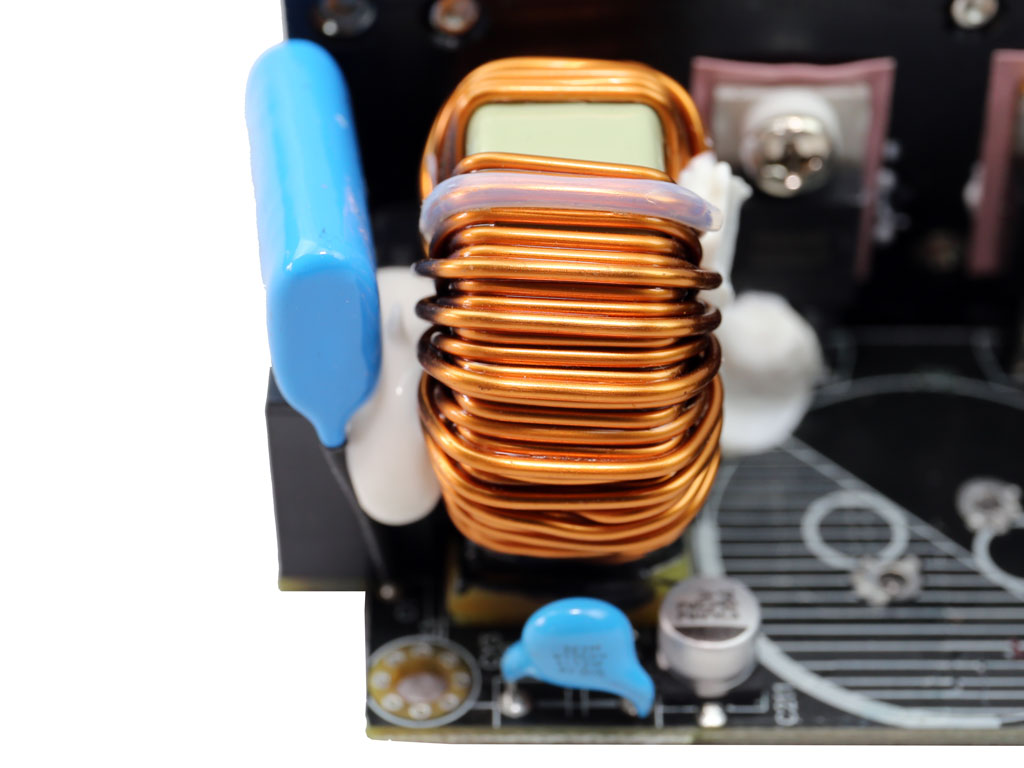
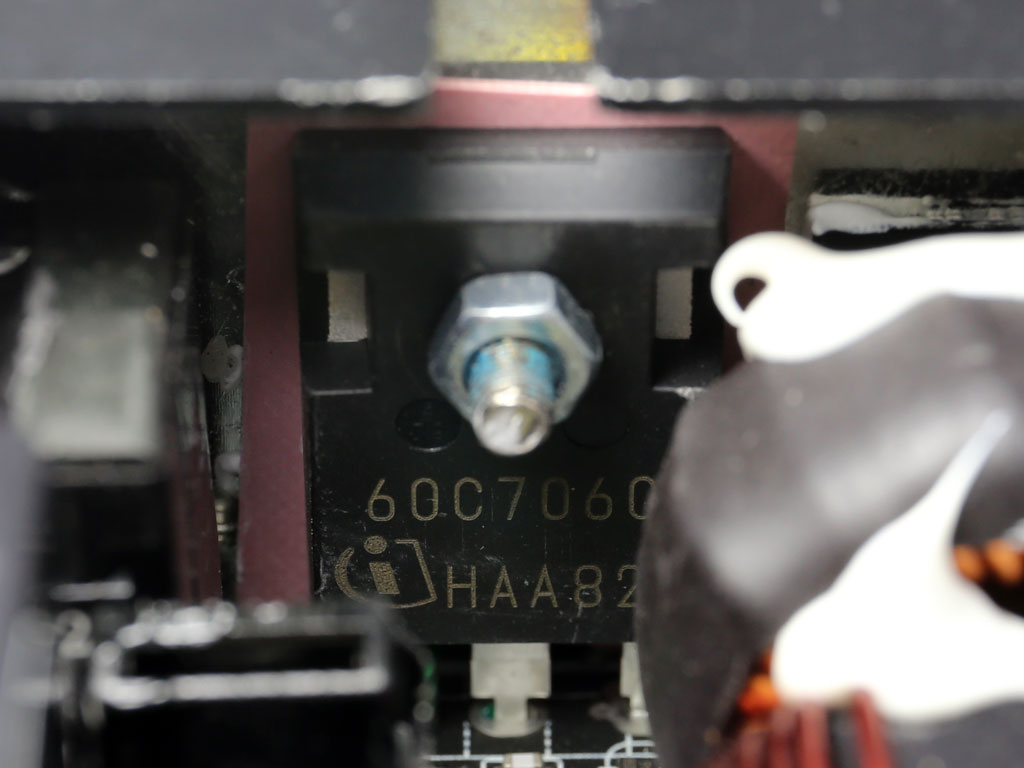
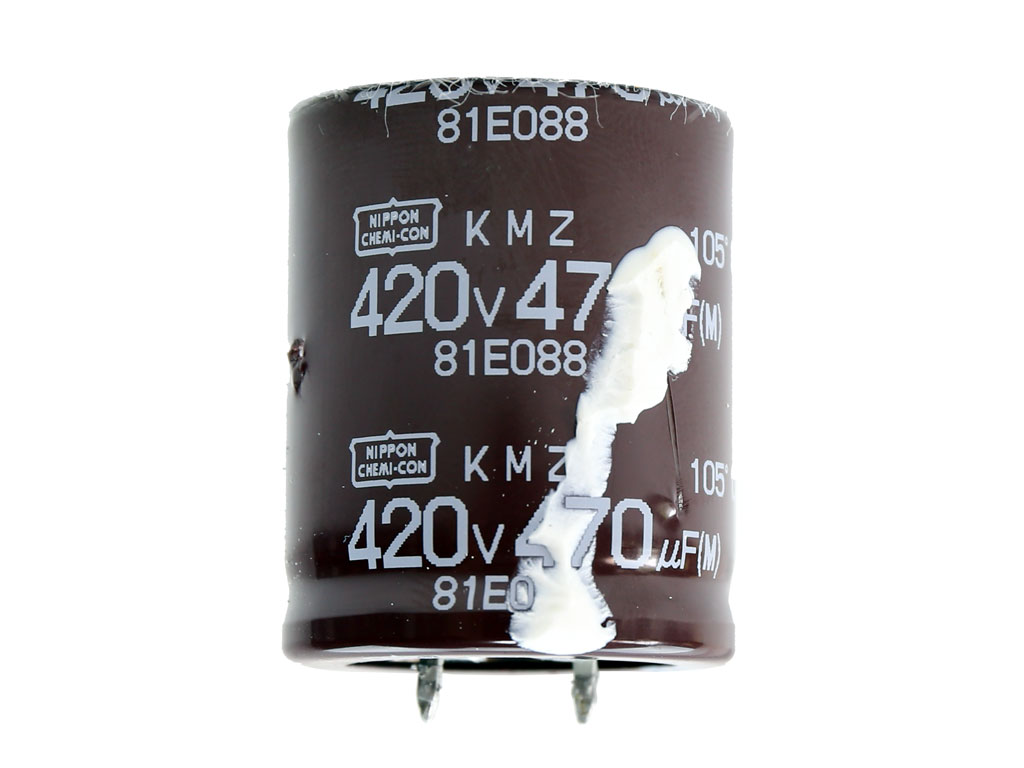
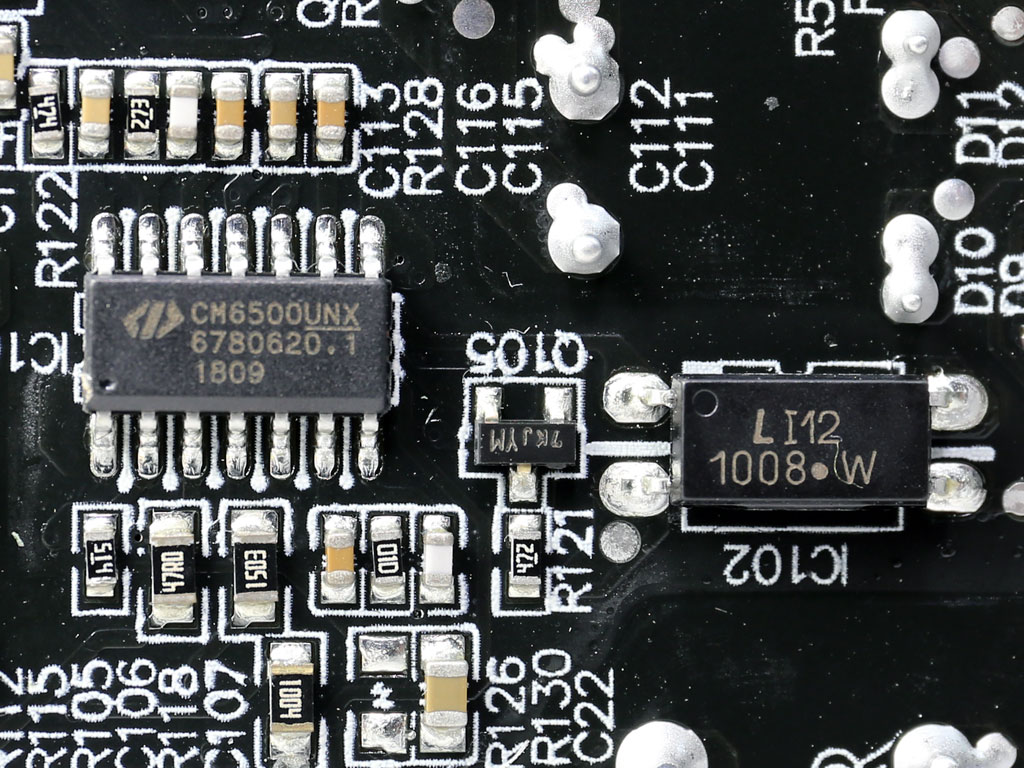
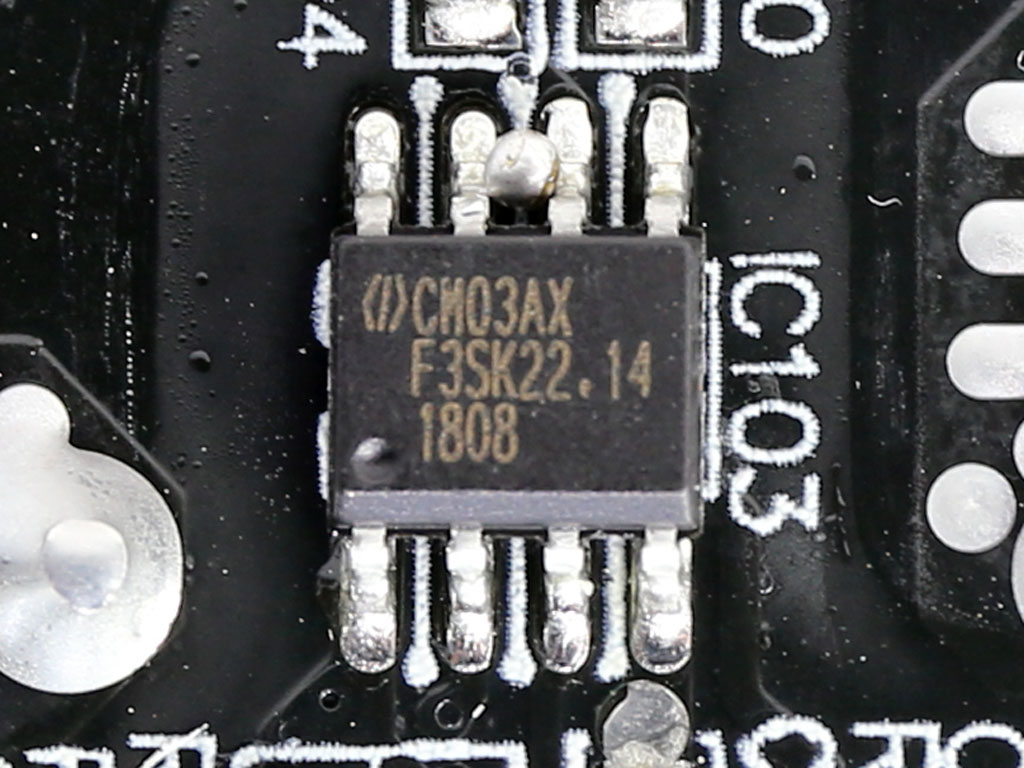
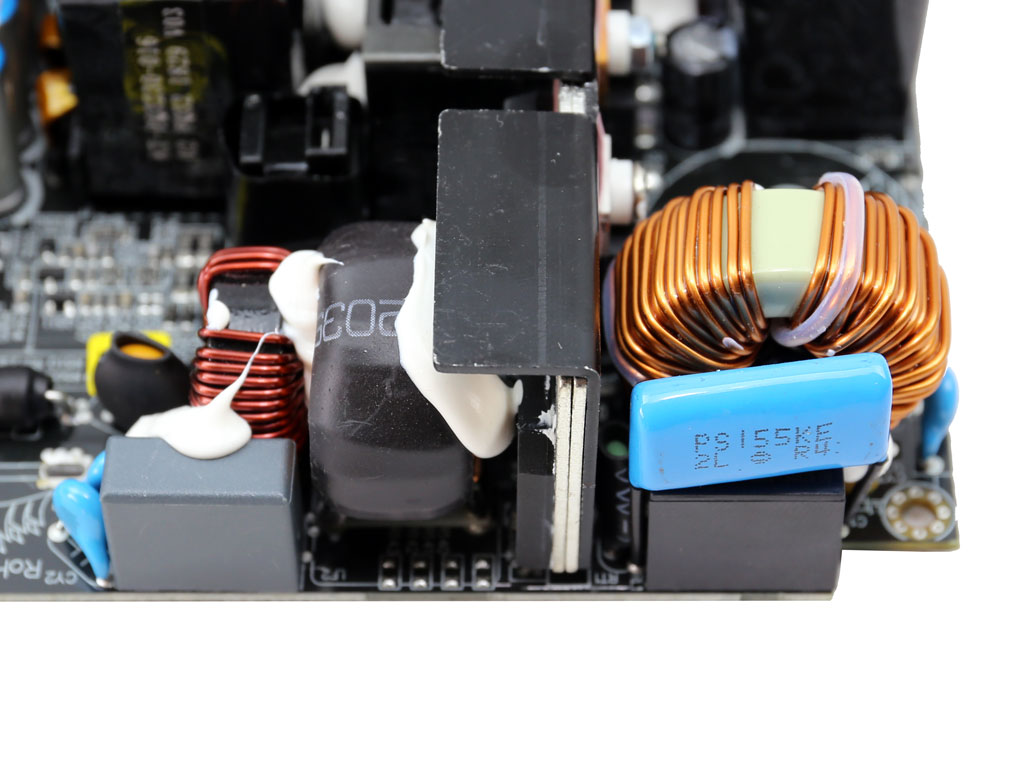
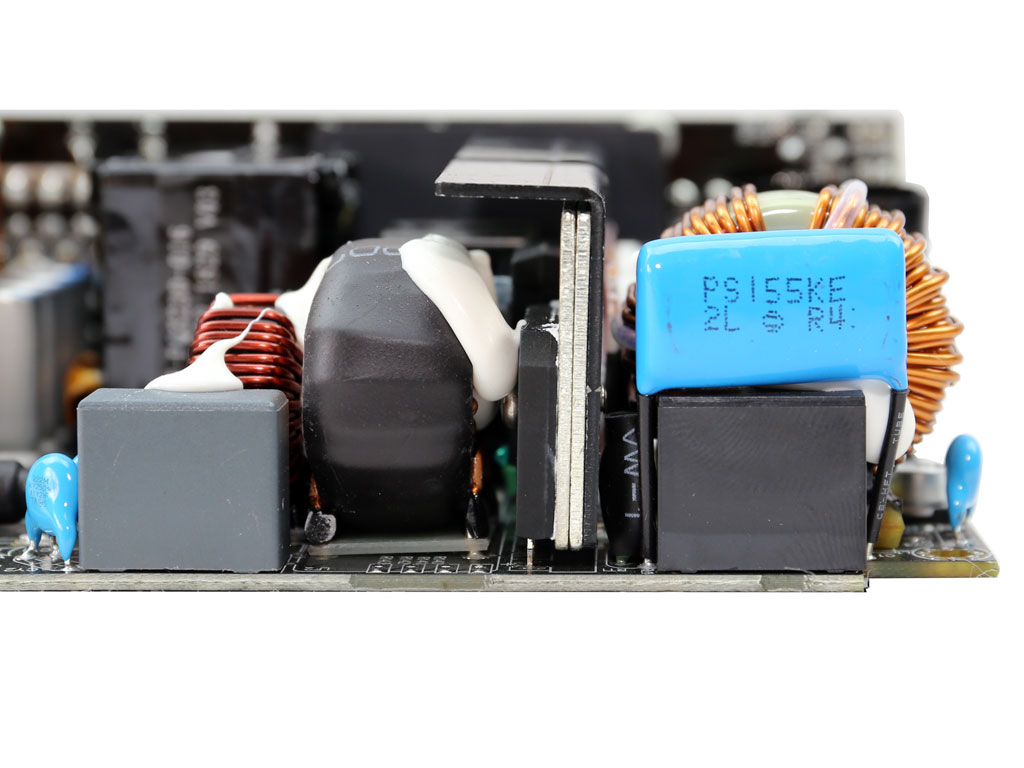
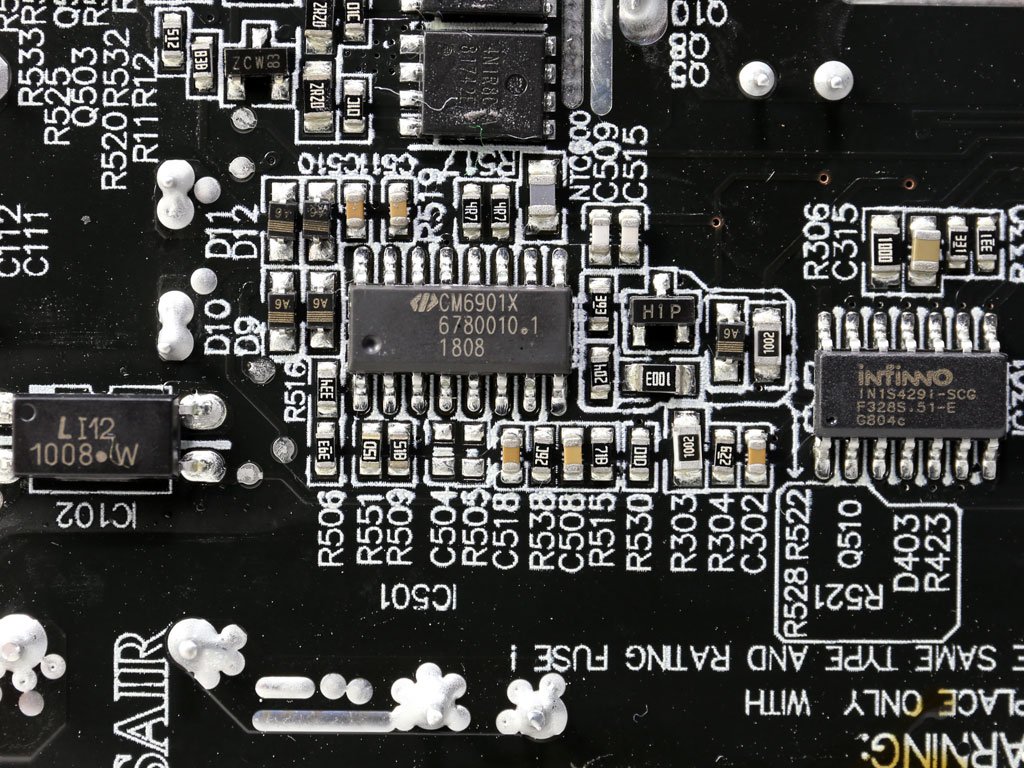
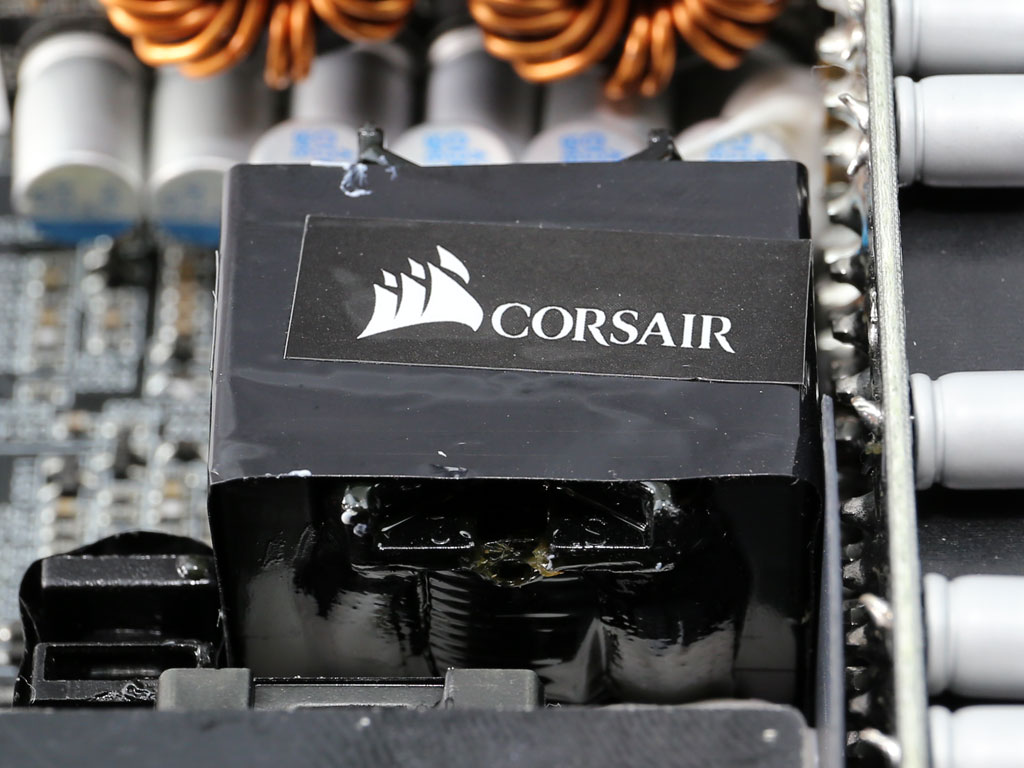
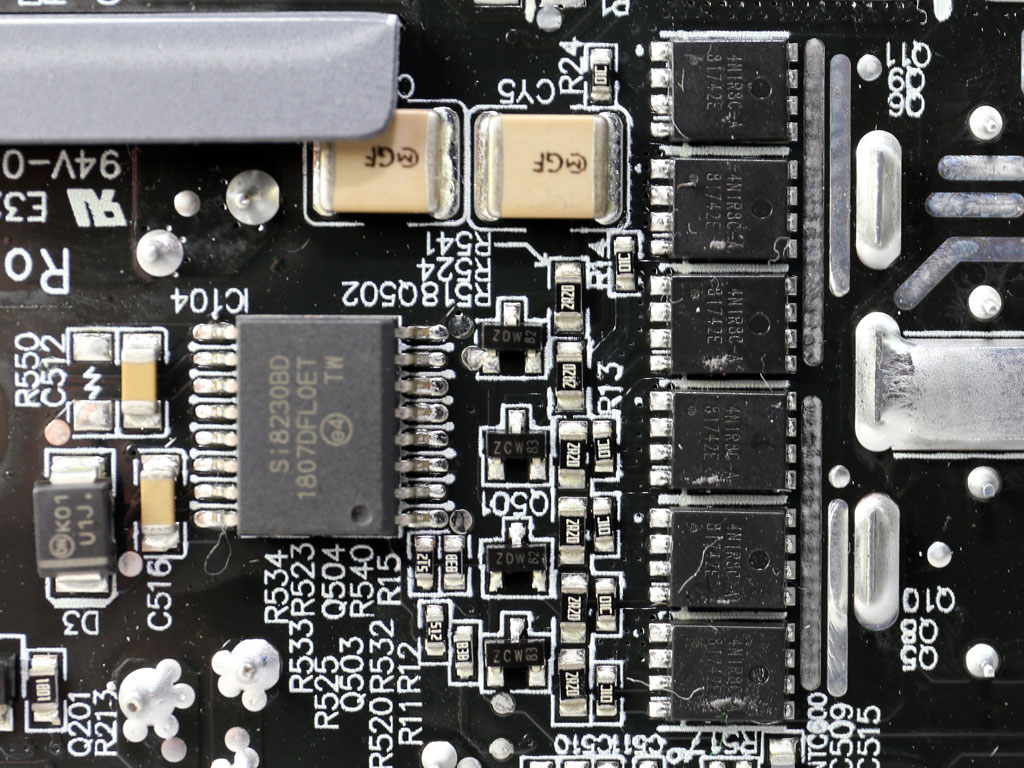
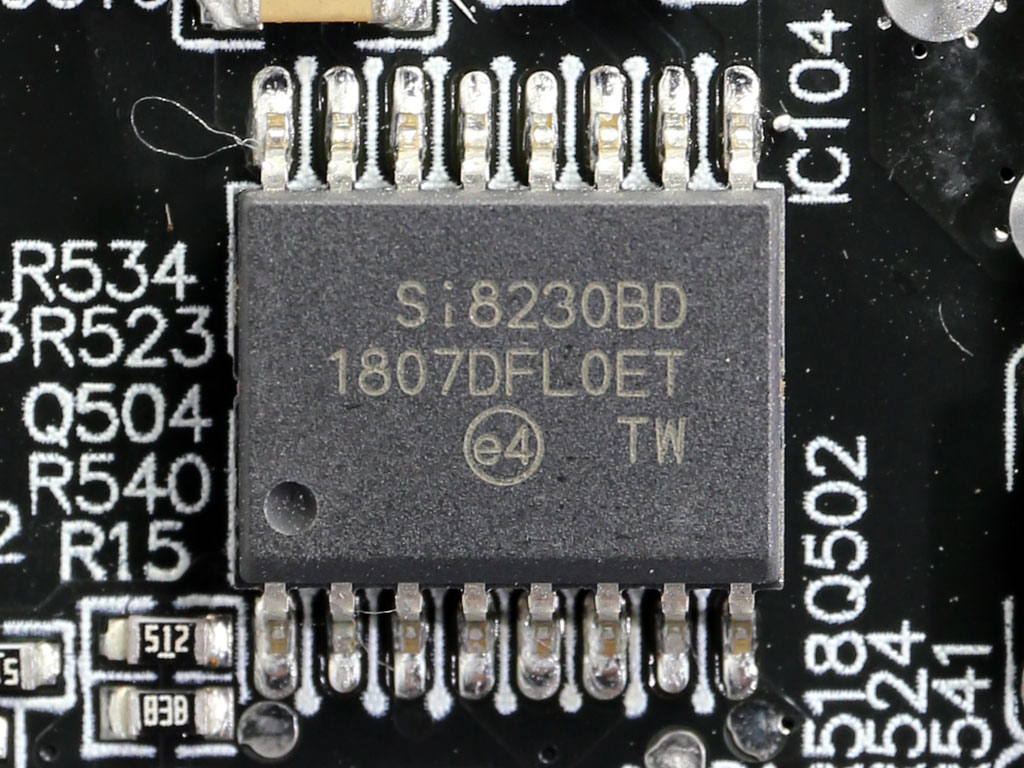
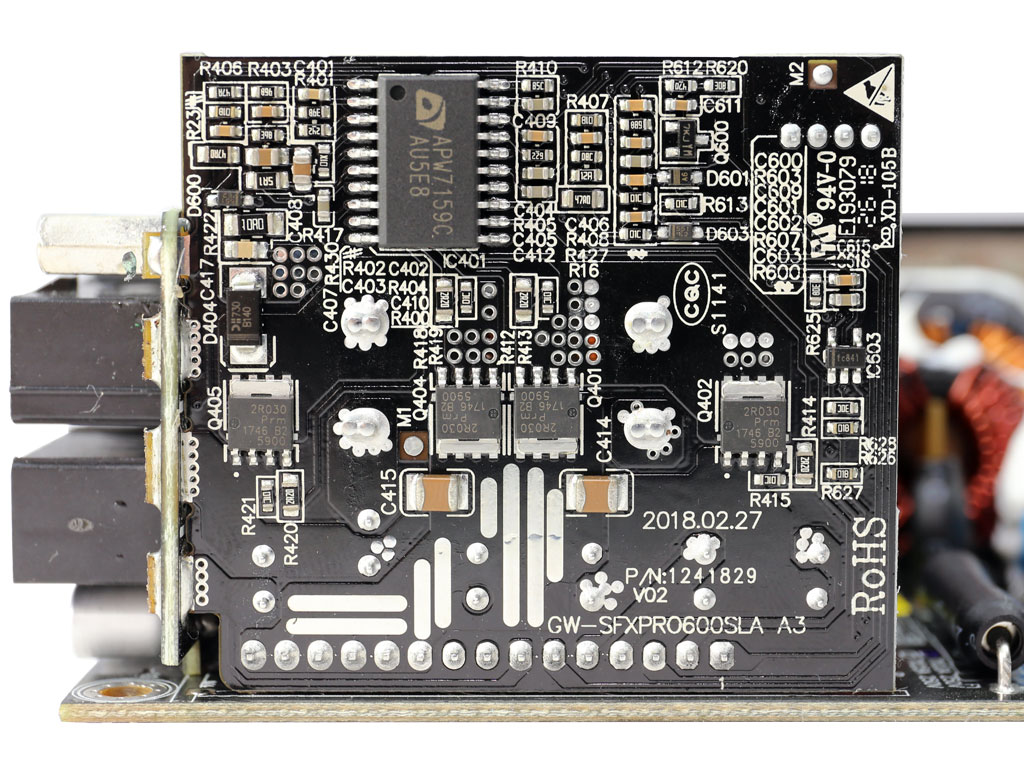
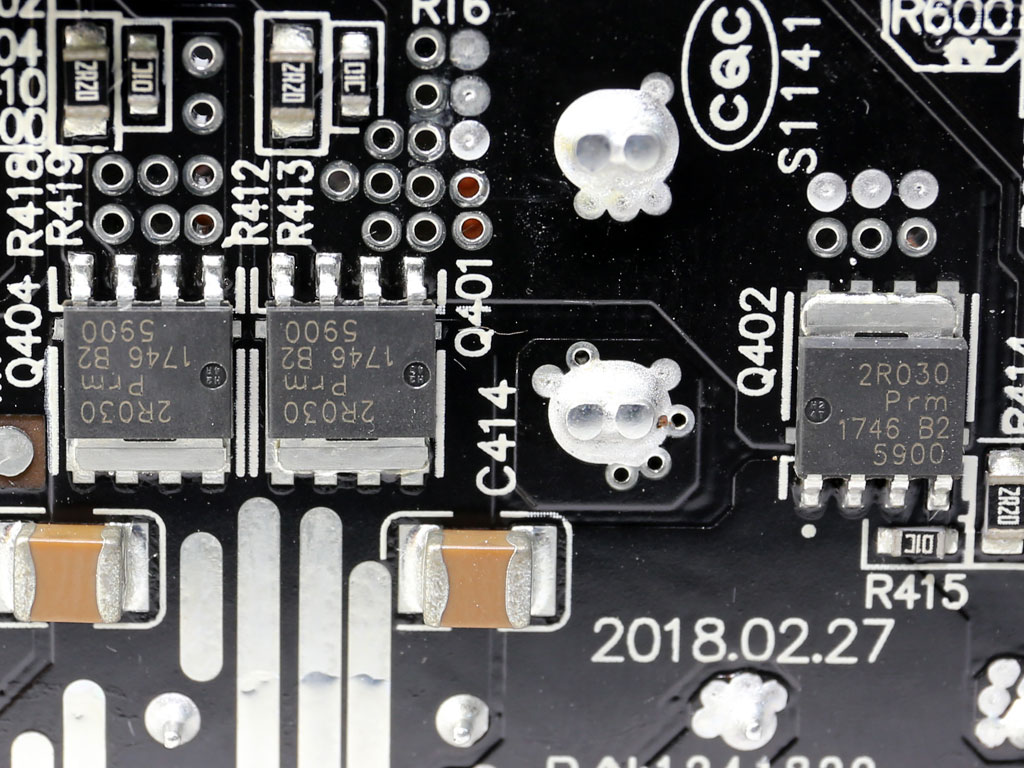
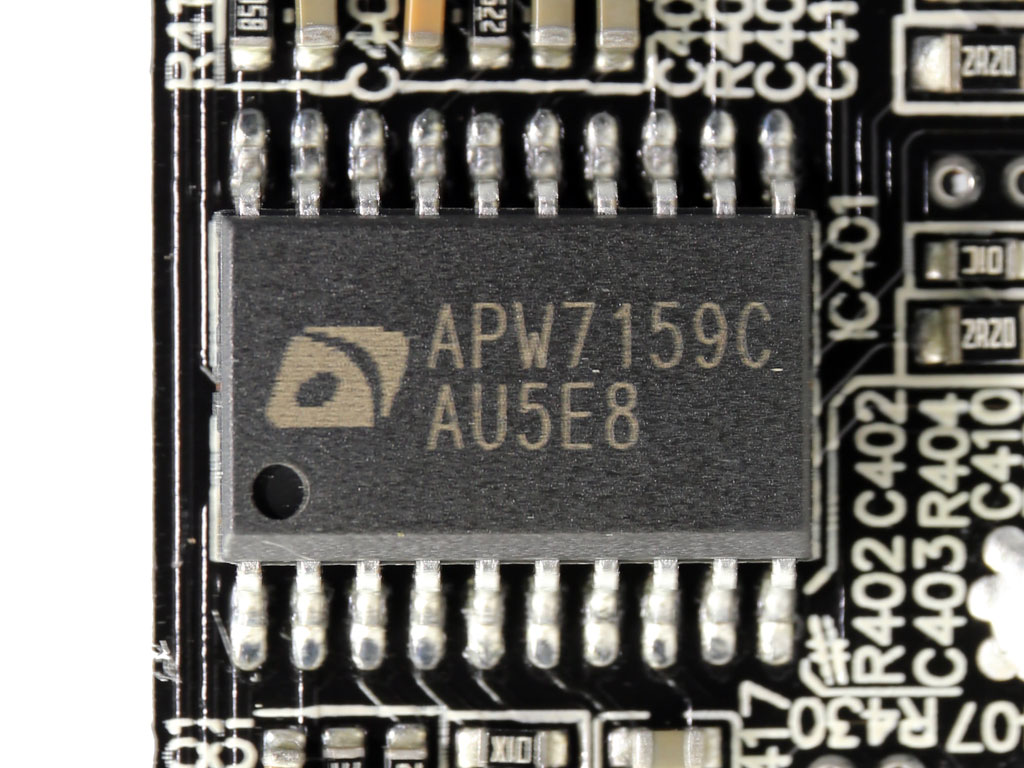
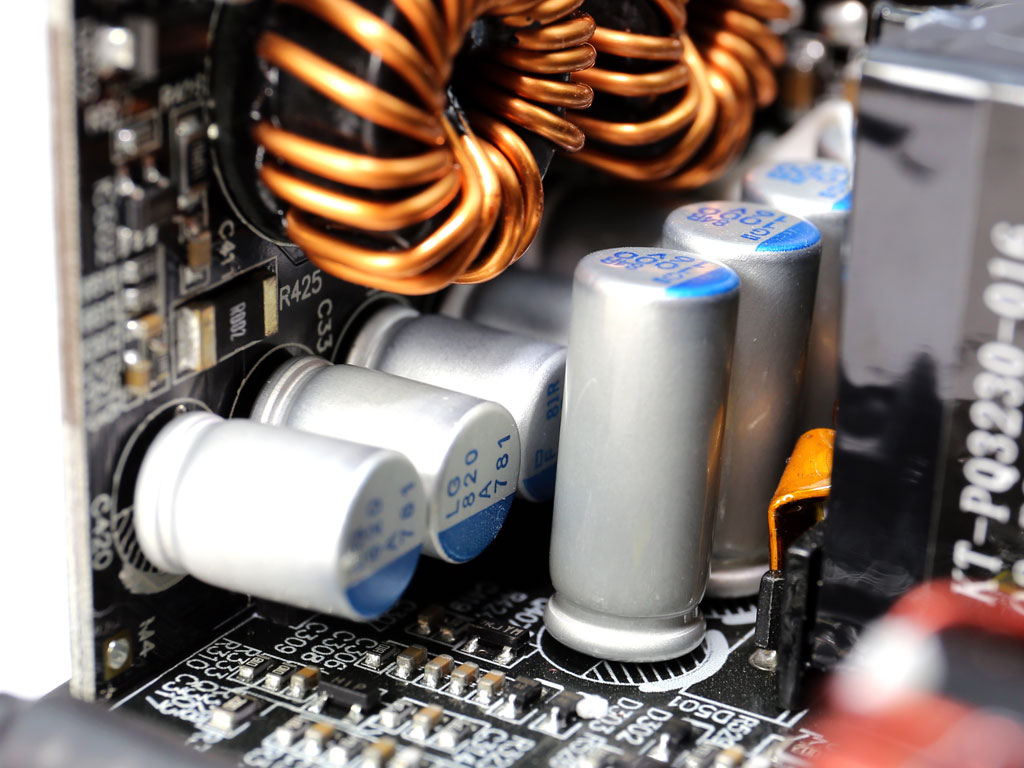
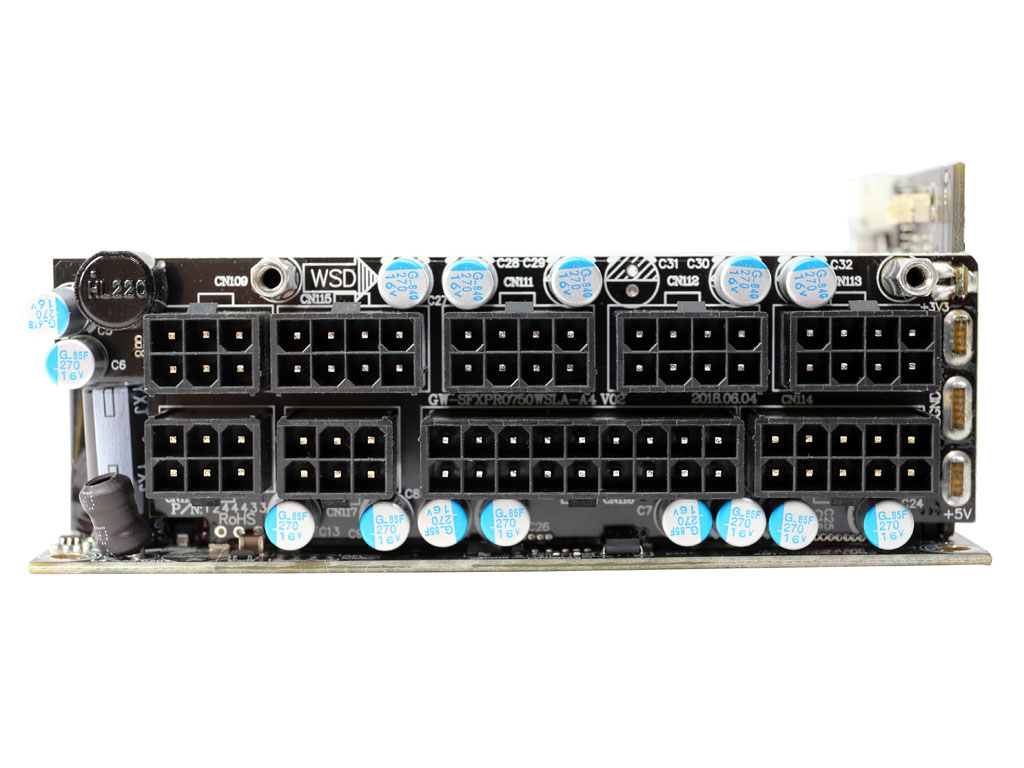
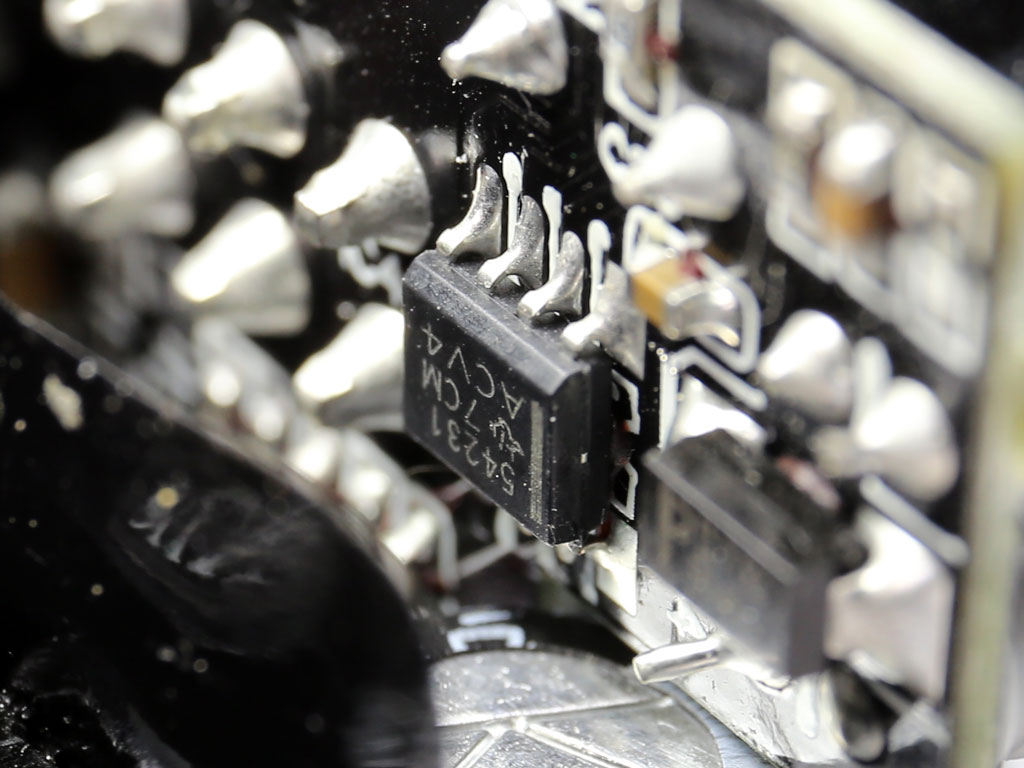
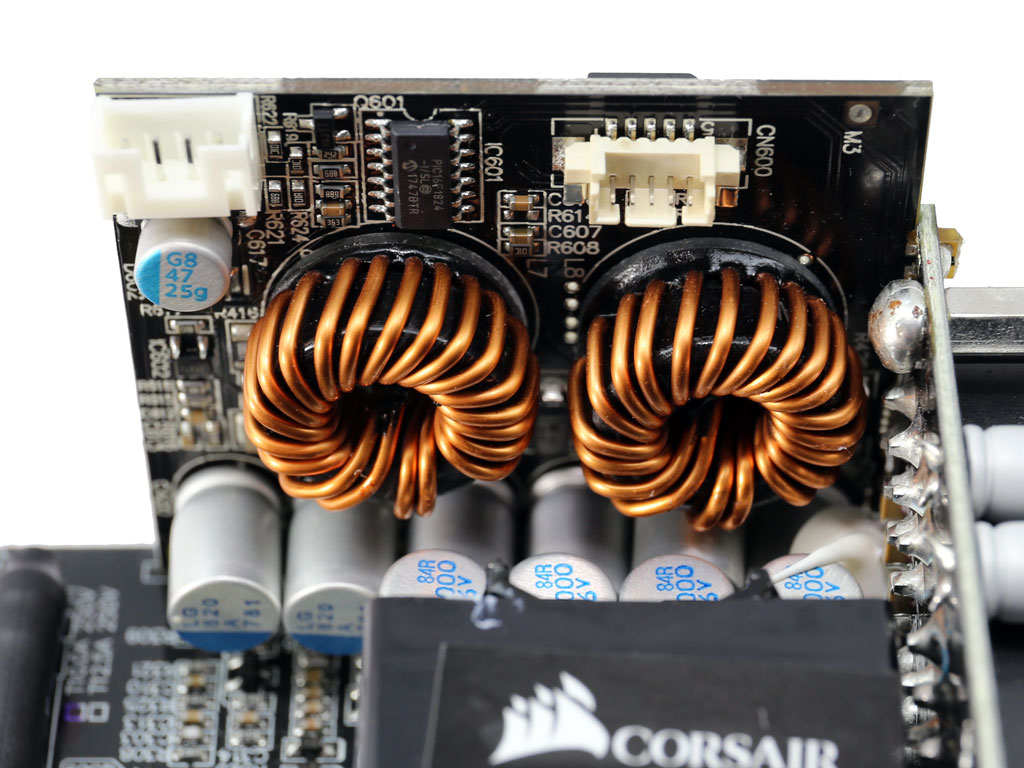
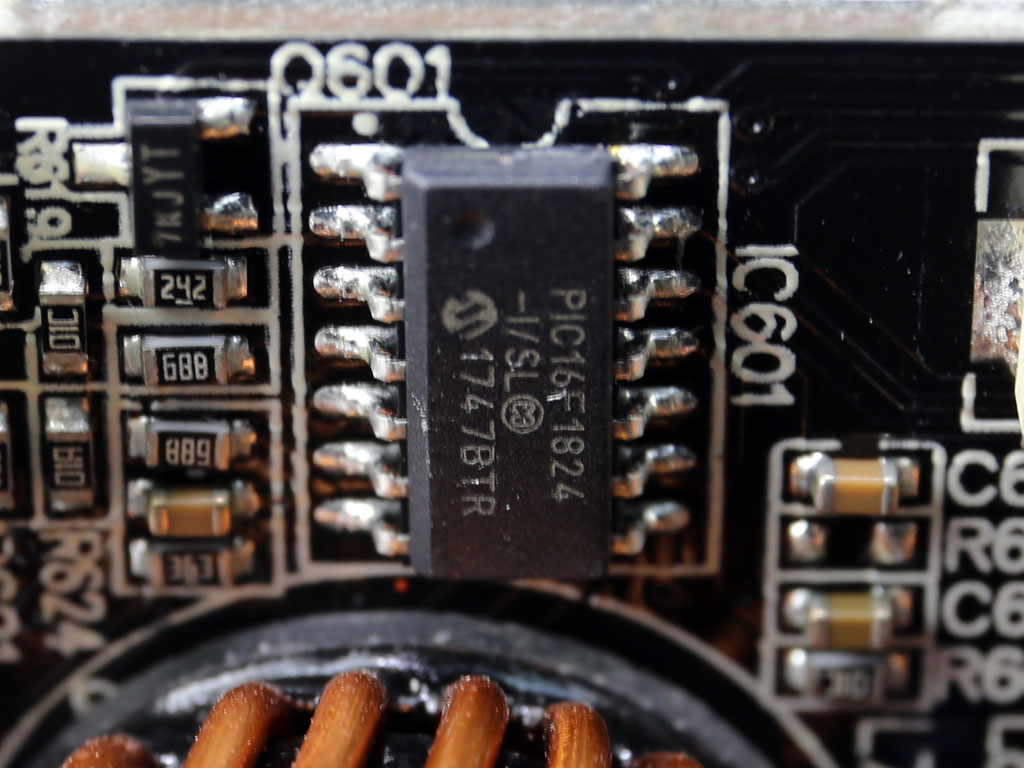
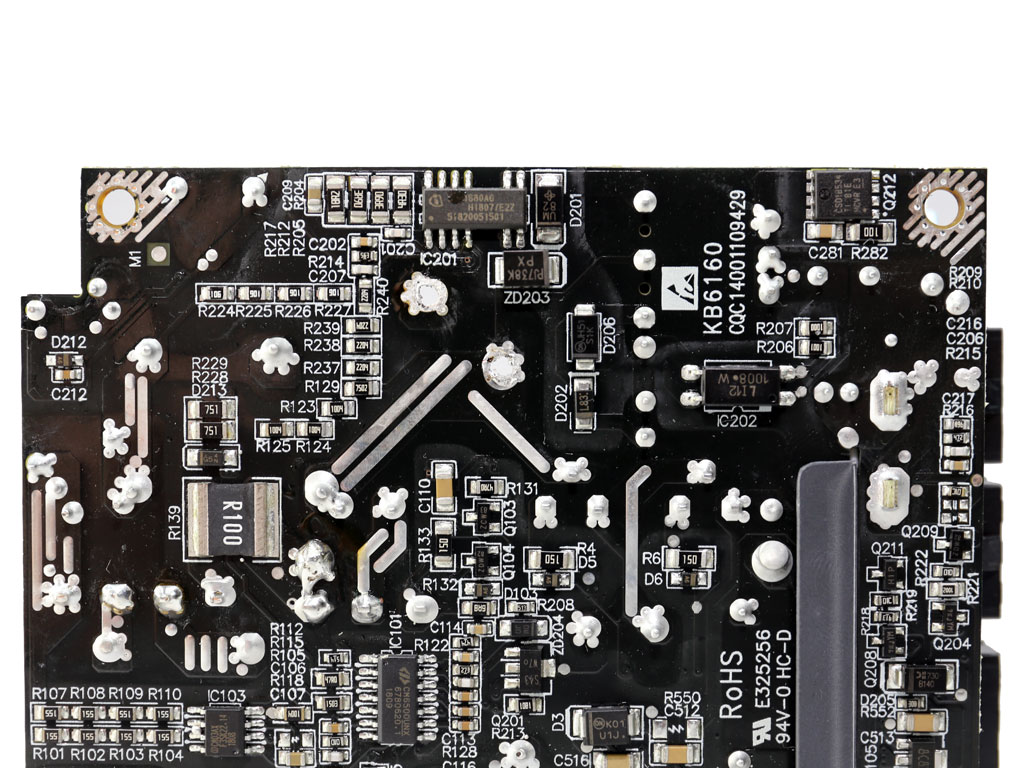
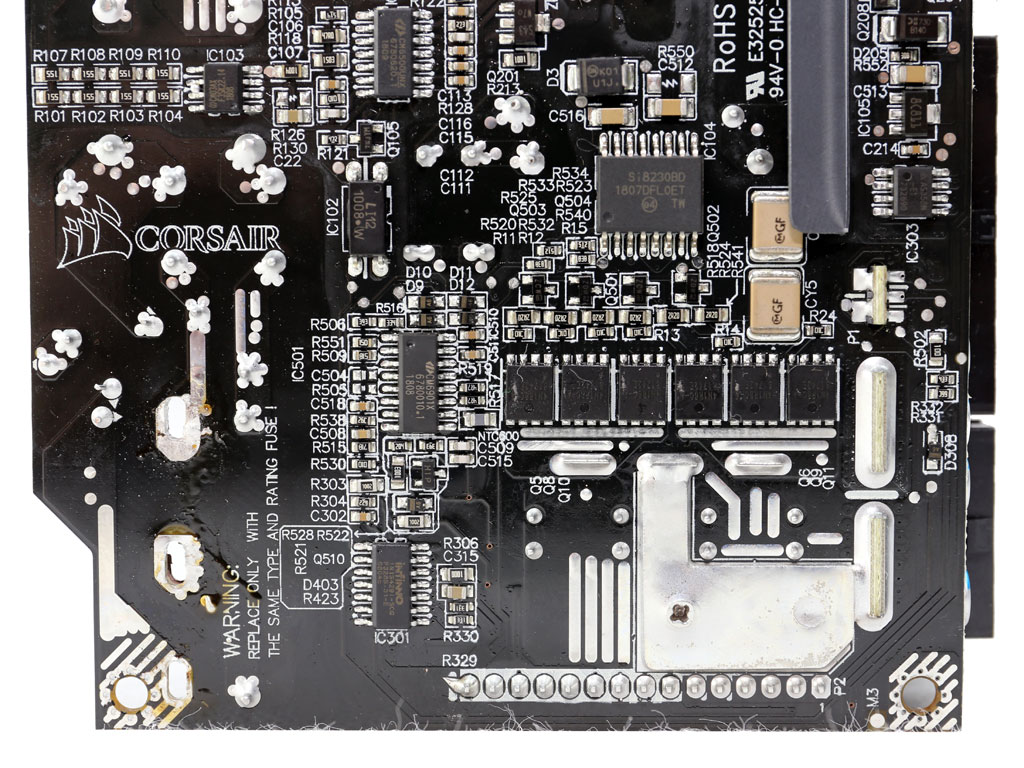
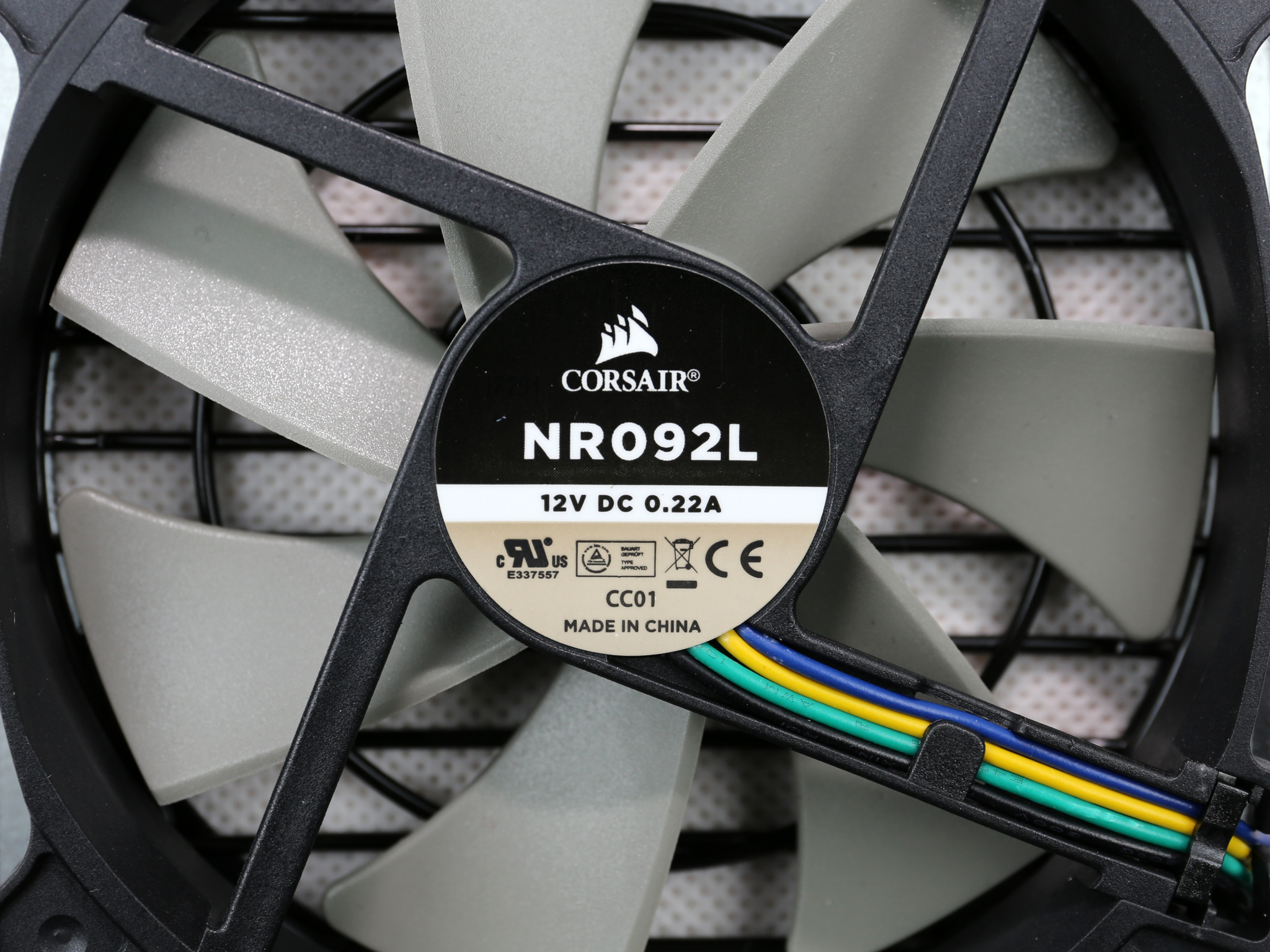
MORE: Best Power Supplies
MORE: How We Test Power Supplies
MORE: All Power Supply Content
Current page: Specifications and Part Analysis
Next Page Load Regulation, Hold-Up Time, Inrush Current, Efficiency and Noise
Aris Mpitziopoulos is a contributing editor at Tom's Hardware, covering PSUs.